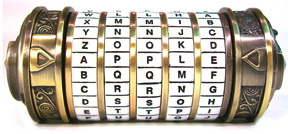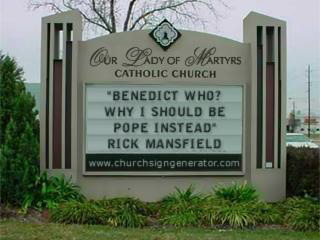Are We Nearing a Full Blown Depression?
“O that my head were a spring of water,
and my eyes a fountain of tears,
so that I might weep day and night
for the slain of my poor people!”
(Jer 9:1 NRSV)
Housing bust, record foreclosures, out of control gas prices, job losses, major financial institutions going under. Really, in my 40 years I’ve never seen anything like it. This was a topic of discussion with my students before our class last night, and I made the statement, “It seems as if we’re nearing a full blown depression.”
Very quickly, one of my students shot back, “Well, you’re the only one to admit it!”
When I asked her what she meant, she said, “All of the politicians on television refuse to even admit that we’re in a recession when everyone knows we are.”
She’s right of course. This election year I’ve been on the email lists of both Barak Obama and John McCain. Obama sent out an email today referring to the situation as “our financial crisis.” Yesterday, McCain referred to “these tough times.” Bush says we’re in the middle of an “economic slow down.” No one wants to use the “R” word and certainly not the “D” word. This is an election year, after all.
The New Oxford American Dictionary defines recession as “a period of temporary economic decline during which trade and industrial activity are reduced, generally identified by a fall in GDP in two successive quarters” (a depression is simply defined as “a long and severe recession in an economy or market” ). So I don’t know if the situation meets this actual criteria but I know times are difficult economically, and I don’t yet see any indication that the immediate future is brighter. I’m generally not a doom-and-gloomer, but I really believe we should be prepared for potentially worse days ahead.
Flipping through the pages of the Renovaré Spiritual Formation Bible, my eyes happened to stop on the note accompanying Jeremiah 9:1. As you read the words below substitute in your mind the word politicians in place of kings.
“Grief is a prophetic activity. Kings put a happy face on everything, tell the people this is the best of all possible worlds and they never had it so good. It takes a truthful prophet to have the guts to grieve societal disaster. Tears are a sign of relinquishment, a letting go of false hopes and false gods, an admission that we are in sad shape and need of deliverance. The community that is faithful to the truth is always the place where we go to grieve, where we are given the space and permission to weep. Grief is not the final prophetic act, but it may be the first--an honest admission that we are a people who need a God who loves and saves. Tears are thus a prelude to openness to the possibility of divine deliverance.”
What Is It with Apple and Grammar?
When I was in high school, none of my teachers would have allowed me to use the sentence above from Apple’s newest iPod touch campaign.
Technically, there are at least two problems with the ad. First, the period implies that the text is more than a label or description, but rather an actual sentence. Yet, if I were grading a paper and saw this exact text, I would label it an “incomplete sentence.” Of course advertisers regularly add periods to text such as this to give a description a sense of finality. Essentially this is shorthand for saying “[This iPod is] the funnest iPod ever.”
Second, there’s a problem with the word funnest, which technically isn’t a word at all. According to traditional English language rules, funner and funnest are not words. If a writer wants to use a comparative or superlative form of fun, correct usage dictates the selection of more fun and most fun, respectively.
Of course, using either of the correct forms makes for awkward advertising copy:
The most fun iPod ever.
or more correct:
This iPod is the most fun iPod ever.
or perhaps Apple could have just said
My new iPod is a lot more fun than your old iPod.
Okay, I can see where correct grammar doesn’t always make for good advertising. And I also have to assume that Apple’s advertisers aren’t uneducated, and they fully realize they are breaking the rules of good usage. Since Apple Macintosh computers come with a software dictionary based upon The New Oxford American Dictionary, I had to wonder what Apple’s own software would say about using the word funnest.

Well, according to Apple’s own internal dictionary, the usage for the word fun may indeed be changing. Note the last sentence: “The adjectival forms funner and funnest have not ‘arrived’ in all the dictionaries, however, and if employed at all, they should be used sparingly and not in formal written English.” Okay, fair enough. Advertising copy is not necessarily a formal context--at least not in regard to this advertisement.
When I teach writing classes, I strongly enforce the rules of grammar and usage because I feel that the parameters given in students’ textbooks offer a foundation for writing that can be modified later in appropriate contexts. I tell my students that great writers know when to bend the rules of grammar accordingly. For instance, Shakespeare regularly invented words when the glossary of his day didn’t express his intention (such as the adjective form of “alone,” lonely). Tolkien will occasionally use a double negative in The Lord of the Rings, but he does so with purpose in order to create a positive meaning from the combined words. A sentence like “It was a dark and stormy night” is not only cliched, but also begins with a pronoun lacking an antecedent. Nevertheless, Madeleine L'Engle could begin A Wrinkle in Time with those very words because she knew what she was doing and was an established writer by the time she wrote that book.
Even Apple’s detractors usually admit that the company makes great products--often products that set the parameters of the playing field for their competitors. So, perhaps they can get away with phrasings that would quickly be marked off on one of my students’ papers. And this is not the first time Apple has been known to break grammatical rules. English teachers gritted their teeth over the “Think Different” campaign in the late nineties (think is a verb and would require the adverb differently, not the adjective different).
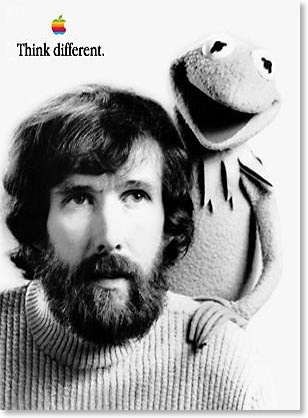
Nevertheless, if you are one of my students reading this, stay away from funnest or I’ll mark it accordingly!
A Little Bit of Conviction
Just A Little Bit of Attention

After I had been there a few minutes, a middle-class-looking family walked in: a little boy who looked to be about four years of age, his mother and father, and a set of grandparents. After they were seated and looking at their menus, the little boy spoke up, "Look, Mommy. These are chairs like my teacher's chair."
No response. The adults in this family weren't talking really; they were just looking at their menus.
"Look, Mommy. These are chairs like my teacher's chair," he said again.
Once more the mother never looked up, and no one said anything.
"Look, Mommy. These are chairs like my teacher's chair."
"Look, Mommy. These are chairs like my teacher's chair."
"Look, Mommy. These are chairs like my teacher's chair. Look, Mommy. These are chairs like my teacher's chair. Look, Mommy. These are chairs like my teacher's chair. Look, Mommy. These are chairs like my teacher's chair. Look, Mommy. These are chairs like my teacher's chair. Look, Mommy. These are chairs like my teacher's chair. Look, Mommy. These are chairs like my teacher's chair. Look, Mommy. These are chairs like my teacher's chair. Look, Mommy. These are chairs like my teacher's chair. Look, Mommy. These are chairs like my teacher's chair. Look, Mommy. These are chairs like my teacher's chair. Look, Mommy. These are chairs like my teacher's chair. Look, Mommy. These are chairs like my teacher's chair. Look, Mommy. These are chairs like my teacher's chair. Look, Mommy. These are chairs like my teacher's chair. Look, Mommy. These are chairs like my teacher's chair. Look, Mommy. These are chairs like my teacher's chair. "
He said it at least that many times. Finally I had had enough. I was frustrated not with the little boy, but with his mother and the rest of this family that were ignoring him for no good reason. So, I turned my chair around to face him, and in the nicest voice I could muster, I looked in his direction and said, "Hey!" in a voice perhaps slightly louder than I intended.
Now I had everyone's attention: the little boy's, his family's and just about every other patron in the place.
Without waiting for the little fellow to respond, I asked, "Are these chairs just like your teacher's chair?"
His face formed into a great big grin, and nodding his head, he said, "Uh-huh!"
And that was it. The constant repetitive phrase was finished. All he had needed was a bit of acknowledgement, just a little bit of attention. I could tell that everyone was still staring at me, but I only turned to the mother to whom I smiled, raised my eyebrows, and then proceeded to turn around to my plate and continue eating.
I know I'm not a parent yet, and I don't want to come across as someone who thinks he can necessarily do it better, BUT I know I want to do it better than them.
Singular They Sighting: Oxford American Dictionaries

I nearly always keep this application open when I am writing or studying to double-check the meaning of a word or look for a synonym. I was looking for another word that meant "know-it-all" for my Wycliffe post when I unexpectedly stumbled across the use of a singular they in the phrase's definition:
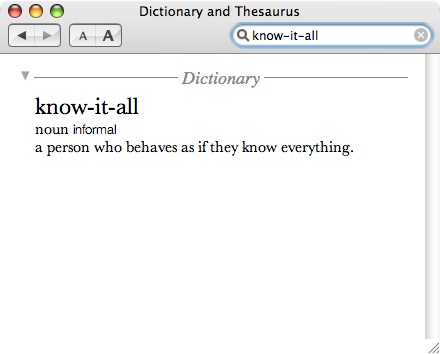
Wikipedia Watch: Follow-Up to the Michael Scott Endorsement
Office' fans flock to edit Wikipedia
By ANICK JESDANUN, AP Internet WriterWed Apr 11, 5:37 PM ET
In the NBC series "The Office," the boss Michael Scott turned to Wikipedia for tips on fending off an employee's request for a pay raise. Viewers quickly flocked to the online encyclopedia and added their take to its entry on negotiations.
Administrators at Wikipedia had to limit editing of the entry, most recently late Tuesday, placing it in "semi-protection" mode. That meant users couldn't make changes anonymously or from accounts fewer than four days old — to discourage those drawn to the site specifically because of the broadcast.
The site imposed similar restrictions on the entry twice before, only to see vandalism continue after they were lifted.
Wikipedia is a collaborative reference site where anyone can add, change or even delete entries, regardless of expertise. The thinking is that the collective wisdom results in a better product overall, and members of the community can watch for any vandalism and reverse it.
In the case of the "negotiation" entry, viewers quickly added phony tips in response to clueless advice from Scott, played by Steve Carell, in last week's episode.
One edit simply replaced the entry with a statement praising the television program. That was followed by the insertion of Scott's tips for getting the upper hand, including "suddenly changing the location" and "refusing to talk first."
Users made more than 100 changes, including those to reverse the vandalism, before the site imposed the latest restrictions on revisions.
Wikipedia does face vandalism from time to time as a result of high-profile mentions.
Fans of Stephen Colbert's Comedy Central show "The Colbert Report" flocked to Wikipedia to alter articles on elephants after he said on the program, "all we need to do is convince a majority of people that some factoid is true — for instance, that Africa has more elephants today than it did 10 years ago."
Changes aren't always noticed and fixed immediately.
In late 2005, prominent journalist John Seigenthaler, the former publisher of the Tennessean newspaper and founding editorial director of USA Today, revealed that a Wikipedia entry that ran for four months had incorrectly named him as a longtime suspect in the assassinations of President John F. Kennedy and his brother Robert.
The last paragraph says it all. And people wonder why I don't take the Wikipedia seriously?
Wikipedia Watch: The Michael Scott Endorsement
Discussion Topic: Does the Title of the New NBC Improv Show, Thank God You're Here, Take the Lord's Name in Vain?

Here are a few thoughts I have on this kind of subject, and I would appreciate your discussion in the comments.
(1) Contrary to what is often taught from pulpits, the command "You shall not misuse the name of the LORD your God, for the LORD will not hold anyone guiltless who misuses his name" (Ex 20:7 TNIV), is about more than mere swearing. What does it mean to misuse the Lord's name? Well, the Hebrew word, נָסָא/nasah, translated as "misuse" in the NIV/TNIV/NLT or "take...in vain" in many Tyndale tradition translations is often defined as to lift, carry, take. This is a word that implies action. I once heard it described as having the imagery of carrying a banner or flag into battle--it denotes belonging, allegiance. To carry the name of the Lord in vain can even mean to claim that one belongs to the God of the Bible and then live as if that were not true. So certainly the commandment is against more than simply referring to God without any real intent of meaning, but it would also include this as well.
(2) The use of the term "God" with meaningless intent is (sadly) part of common speech, often even among Christians. Personally, I believe I am standing on solid biblical ground in suggesting that believers should not use it as such. The counter claim could be made that "God" is not actually God's name. This is true, but "God" is used interchangeably not only in our speech, but even in the Bible with the divine name. Certain religious Jews will not even write the generic word, but will offer something such as "G-d."
(3) I can't imagine that this title would have been used in a television show a generation ago. I can still remember hearing the word "God" beeped out of discussions on television many years ago.
(4) What is the proper Christian response toward culture? Granted, we cannot expect non-believers to act or speak like believers. Do we even have any business questioning what television networks choose to call a show? Well, I think we do because I'm certain that NBC would want as many people as possible to watch. NBC doesn't look at this as a show aimed at non-Christians, but a show aimed at as many viewers as will tune in. Therefore, Christians, too, are part of the target audience. There may be a need at least to call the network into question regarding the name of the show. I don't really think they will change it, as it is an American version of an overseas show by the same name. But it might be a good idea to call their attention to such things, that in my opinion, are offensive--even if they don't understand why.
These are my thoughts. I'm not calling for a boycott or anything of that nature. I am asking for feedback to know what you think. Am I making a big deal out of nothing? Should, at the very least, concerned Christians (and religious Jews) make their concerns known to NBC?
Let me know what you think.
Wikipedia Watch: Editor Who Posed As Professor Is Kentucky Dropout
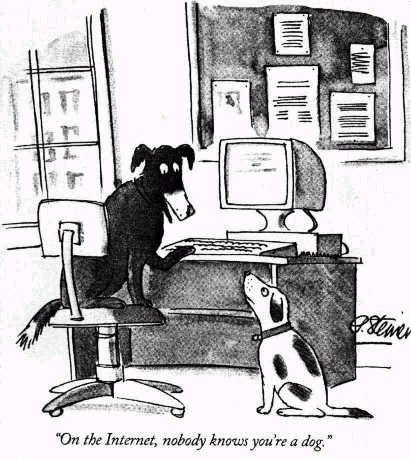
Above Cartoon by Peter Steiner. The New Yorker, July 5, 1993 issue (Vol.69, no. 20) page 61
From today's Courier Journal (Louisville, Kentucky):
He touted himself as a tenured professor with doctorates in theology and canon law.
But the volunteer editor and fact checker for the free online encyclopedia Wikipedia turned out to be a 24-year-old dropout from Centre College and Lexington Community College.
In a long feature last July, The New Yorker described how Ryan Jordan -- identified online and in the magazine article as Essjay -- was renowned for rooting out errors and obscenity from Wikipedia, whose entries are contributed and corrected by readers and volunteer editors.
Last week, however, after Jordan's credentials were exposed as fictitious, the magazine ran a correction -- and yesterday Jordan, who had written or edited about 16,000 entries, resigned.
Wikipedia has said no questions have been raised about the accuracy of his work.
Critics of Wikipedia said the deception was fitting, given the site's history of errors that include reporting that the prime minister of Norway was a pedophile.
Devoted contributors, including Louisville computer programmer Steve Magruder, who has written many entries about the city, said they feared Essjay's deceptions could damage the encyclopedia's credibility. [Rick chuckles..."You think?"]
Another Wikipedian, as they call themselves, denounced Jordan last week on the site, saying: "I hope you understand how you are –––– all over the thousands of people who have made a real effort to turn Wikipedia into a credible source."
Responding on his Wikipedia page, Jordan initially defended his deceptions by saying he had to protect himself from online stalkers. He told The New Yorker he routinely got death threats from people he banned from the site.
Wikipedia's co-founder, Jimmy Wales, also said at first on the site that he had no problem with Jordan's invented persona.
But yesterday, Wales asked for Jordan's resignation.
Read the entire article by Andrew Wolfson.
Ahh... the democratization of knowledge...
You know the issue is not that Jordan is a dropout. There are lots of intelligent, well-educated, successful folks who never finished college (consider Bill Gates, Steve Jobs, and many of my friends and family). No, the fact that Jordan is a dropout only adds to the irony that he was impersonating a tenured professor with multiple doctorates. And this adds to the growing concern from myself and others regarding the use of the Wikipedia as a serious source of information (I think it's great for pop-culture references).
And even if Jordan's work was 100% accurate, his subterfuge calls everything he's written/edited on the Wikipedia into question. Someone will have to go behind him to verify his work. He was responsible for cleaning up the nonsense that any bozo can add/edit on the Wikipedia. But you'd think they at least check out the checkers!
I can guarantee this wouldn't happen at Britannica.com...
Wikipedia Watch: Not Satisfactory for College Papers
College: Wikipedia Not Source for Papers
Middlebury College in Vermont Says History Students May Not Cite Wikipedia As a Source
The Associated Press
MIDDLEBURY, Vt. - Middlebury College history students are no longer allowed to use Wikipedia in preparing class papers.
The school's history department recently adopted a policy that says it's OK to consult the popular online encyclopedia, but that it can't be cited as an authoritative source by students.
The policy says, in part, "Wikipedia is not an acceptable citation, even though it may lead one to a citable source."
History professor Neil Waters says Wikipedia is an ideal place to start research but an unacceptable way to end it.
Copyright 2007 The Associated Press. All rights reserved. This material may not be published, broadcast, rewritten, or redistributed.
Copyright © 2007 ABC News Internet Ventures
I know that I'm often hard on the "democritization/relativization of knowledge" inherent in the Wikipedia. But in reality, Middlebury College's decision isn't really so much a slam against the Wikipedia as a reaffirmation that encyclopedic references are not suitable for college papers. Any encyclopedia, whether the Wikipedia or Britannica are beginning sources for research that should point to other, more detailed information that would be appropriate in a college paper.
When I was in college, I would have ever used an encyclopedia as a reference, but I often I did stop there first in my research. Could it be that the internet has just made some students a bit lazy?
The Ethic of "It's Legal As Long As I Don't Get Caught"

I am completely appalled at what just happened to me! A first year teacher was being observed by a college professor and he heard me announce to a class of students in a health class that as we research we do not cut and paste information onto Word documents to use as presentation material, but that we take notes from what we read on the web. This professor turns to me and asks me why they can’t do that? I told him that breaks copyright laws and he says, “How would the person who wrote the information on the web know the student used their work?” How about that?
This, of course, is the ethic of "it's legal as long as I don't get caught." Plagiarism is a huge problem on college campuses these days (and even seminaries--I'm a grader at SBTS and know full well), and it makes one wonder what this particular professor would accept in his own classes.
I went through a period teaching my classes at IWU in which I had about three blatant plagiarism issues one right after another. I've since found that if I address the issue up front on the first day of class, both in discussion and in the syllabus that there's less likelihood of a student trying to steal work from an outside source. I explain to my students (without revealing my secrets) that I'm very good at spotting it, and by the time I speak to them about any incident, I will have already confirmed that it is indeed plagiarism with the dean and it will already be on their records. As I said, I don't have instances of plagiarism nearly as often now that I've taken a proactive approach. But with teachers like the one described in the quote above, encouraging the theft of others' work, it continues to be an uphill battle.
Uptight NFL Lawyers Want to Cancel Your Church's Super Bowl Party

For groups that want to host Super Bowl parties -- other than sports bars and businesses that normally show televised sports -- here are rules the NFL says must be followed:
• No admission fees (even to pay for snacks).
• Only one television (55 inches or smaller).
• No use of the words "Super Bowl" in promotional materials.
• No exhibition of the game in connection with events "that promote a message."
Source: NFL
As a kid I noticed that no one came to church on Super Bowl Sunday night. Well...maybe a small number. But in those days, it was a taboo topic to even suggest that we cancel Sunday night service for a sports event. However, I'm sure that even the ministerial staff secretly wished they could be home watching the game. I even remember the blank stares I received while on my first church staff around 1990, when I suggested we borrow or rent a number of large screen televisions (this was right before the advent of data projectors) and hold a Super Bowl party at church.
Regardless, such gatherings are common today. This Sunday night, churches all around the country will hook up a cable television signal to a data projector to show the big game. It's good family fun--an alternative to sports bars and a chance to see the game with friends and family on a screen larger than what most people have in their homes.
Even though churches have been doing this kind of thing for over a decade, one church, Fall Creek Baptist in Indianapolis, has received word from uptight NFL lawyers that showing the game on a screen larger than 55" and using the term "Super Bowl" in its promotion is a violation of copyright laws. And guess what? Your church may be the next target.
The irony in all this is that exception is made for sports bars, also a popular gathering place for Super Bowl parties.
From yesterday's Indianapolis Star:
NFL's lawyers sack church's game plan
By Robert King
robert.king@indystar.com
The thousands of churches across the country that want to host Super Bowl parties Sunday night had better not pull out big-screen TVs, or they could face the wrath of NFL attorneys.
The NFL is telling Fall Creek Baptist Church in Indianapolis that the church's plans to use a wall projector to show the game at a party for church members and guests would violate copyright laws.
NFL officials spotted a promotion of Fall Creek's "Super Bowl Bash" on the church Web site last week and sent pastor John D. Newland a letter -- via FedEx overnight -- demanding the party be canceled.
Initially, the league objected to the church's plan to charge partygoers a fee to attend and that the church used the license-protected words "Super Bowl" in its promotions.
Newland told the NFL his church would not charge partygoers -- the fee had been intended only to pay for snacks -- and that it would drop the use of the forbidden words.
But the NFL wouldn't bite. It objected to the church's plans to use a projector to show the game on what effectively was a 12-foot-wide screen. It said the law limits the church to one TV no bigger than 55 inches.
The league even took exception to the church's plan to influence nonmembers with a video highlighting the Christian testimonies of Colts coach Tony Dungy and Chicago Bears coach Lovie Smith.
"While this may be a noble message," NFL assistant counsel Rachel L. Margolies wrote in a follow-up e-mail, "we are consistent in refusing the use of our game broadcasts in connection with events that promote a message, no matter the content."
Given all the NFL's concerns, the church appears unlikely to host a Super Bowl party.
"The Colts and Tony Dungy are such good people -- and (team owner) Jim Irsay, too. We want to be supportive of our local team. I don't want to make our people choose between coming to church and watching the game. It is such a big event," Newland said.
"For us to have all our congregation huddled around a TV that is big enough only for 10 or 12 people to watch just makes little sense."
Newland said he expected there are churches across the country that are planning similar Super Bowl watch parties using big screens.
NFL spokesman Greg Aiello said the league's longstanding policy is to ban "mass out-of-home viewing" of the Super Bowl. A major exception to the rule is made, however, for sports bars and other businesses that show televised sports as a part of their everyday operations.
"We have contracts with our (TV) networks to provide free over-the-air television for people at home," Aiello said. "The network economics are based on television ratings and at-home viewing. Out-of-home viewing is not measured by Nielsen."
Newland said his church won't break the law. But he sees a double standard at work when sports bars with giant screens can charge barstool rental fees and sell food, but his church can't offer a free event for families.
"It just frustrates me that most of the places where crowds are going to gather to watch this game are going to be places that are filled with alcohol and other things that are inappropriate for children," Newland said. "We tried to provide an alternative to that and were shut down."
So Fall Creek Baptist Church has cancelled it's Super Bowl Party. Notice that in the statement released on the church's website, Pastor Newland even avoids mentioning the phrase, "Super Bowl," no doubt out of fear of more legal reprisal:
Fall Creek Baptist Church Family...
We regret to inform you that we have had to cancel our bash to view the Colts game this Sunday in a family friendly environment due to the fact that the NFL believes we would be in violation of the Copyright Act, because we had planned to show the game on a screen bigger than a 55 inch diagonal. We have appealed to their legal counsel and exhausted all options without success. We have been informed that the only exceptions to view the game are given to sports bars and restaurants. While we have argued that we only intend to provide a family oriented environment that will make no profit from the showing, the NFL claims that our event cannot proceed by law. Therefore, we have no choice but to challenge this in court or cancel the event. We choose to cancel the event. We deeply regret that we have been prohibited by the NFL from providing a family friendly environment for celebrating the Colts great season.
Pastor John
The gall of NFL lawyers shutting down a church Super Bowl party in the Colts' hometown!
I understand that copyright laws are designed so that owners of creative content get due compensation or that their creation is not used in unintended ways such as third parties making profit from the work. But really, how is a church's Super Bowl party a violation of this? If anything it's free promotion of the NFL and the Super Bowl by churches all across the country, and it probably draws some viewers who might not watch the game otherwise.
My prediction is that such overzealous legal bullying will backfire on the NFL in publicity nightmare. In fact I would suggest that you take the time to write a quick letter to the NFL and make your feelings known if you are as aggravated about this as I am. Send your thoughts to:
National Football League
280 Park Avenue
New York, NY 10017
As for my plans Sunday night? Well, I can't tell you that. I'm too afraid of the NFL's Gestapo lawyers shutting us down.
UPDATE: Evidently, concerns over Nielsen ratings may actually be the source of the NFL lawyer's zealotry. Supposedly, if everyone is gathered at a church to watch the game, there's no way to track actual viewership. Lower numbers in the Nielsen ratings might make it more difficult for CBS to charge those exorbitant commercial time fees (this year's cost per commercial during the game is a whopping $2.6 million). But if this is the case, then why not block the sports bars as well? Seems like a huge double-standard to me, and worse, one that discriminates against the church.
Closed for Christmas (The Missing THIS LAMP Blog Entry)
In December of last year, the Lexington Herald Leader (the secular press, mind you) broke a story questioning why some churches had announced that they would not be open for services since Christmas fell on Sunday. Ben Witherington responded to it on his blog, and that's how I discovered it. Over the next few days leading up until Christmas, this issue would create quite a bit of controversy especially in evangelical discussions. However, This Lamp did not take part in the discussions because I pulled the article. Why?
Kathy and I had made the difficult decision to leave a church where we had been members, and I had been on staff on two separate occasions, for twelve years. This was a very difficult decision for us, but after moving to an entirely different county the year before, the commute--while not totally unmanageable--began to affect our participation, especially any mid-week activities. Further, after a number of years of reflection, I had grown increasingly convicted about the necessity of being part of a neighborhood church, not one that took me out of my local community (see my series "Rediscovering the Neighborhood Church" in the Site Index).
In leaving our former church for one literally within walking distance of our home, I tried very hard to emphasize to people at our former church that we were not leaving over disagreements or any of the normal, often petty reasons many people leave churches. I wanted to stay in good standing with our former church because I loved it and her members dearly.
So on December 5, 2005, a little while after posting the blog entry below which decried closing church doors on Sunday, I thought I should check the website of my former church. To my surprise, I saw that they, too, had planned to cancel Sunday services on Christmas. Out of propriety, because I didn't want anyone to think I was making a passive-aggressive stab at my former church, I pulled the post.
I believe enough time has passed that I can make the post again. By now I hope that no one has negative ideas about why we left our former church. And I hope that the issue of Christmas/Sunday services could be discussed in a time when it is not so much of a pressing issue. However, it is an important issue and will come up again in a mere five years. Rereading my self-censored post again, I realize that my mind has not changed a bit on this issue. We have five years to plan for Sunday Christmas services in 2011. Why not make this the most memorable celebration of a generation?

Does this make sense? Yes, the family is important, but do we promote the family OVER community worship on this Christian high day? What's next? No service on Easter because it also falls on the Lord's Day? The word Christmas itself comes from "Christ's Mass," one of the most significant worship days in the church's calendar.
I remember as a small child (probably about six-years-old) speculating that if Christmas ever fell on a Sunday (two holy days together), perhaps the Lord would return on that day. I didn't realize that this exact thing had already happened many times over the centuries. But even as a child, I saw the significance of these two days occurring together.
It makes you wonder if such a decision is best when even the secular media asks, "Why Do Churches Close on Christmas?" (Lexington Herald-Leader) [link is no longer active, but look here for reference to it]. As the church at large seems to be losing relevance in society, I'm not sure what kind of message this sends. Yes, we are promoting families. However, when a person becomes a disciple of Jesus Christ, he or she has a brand new family that goes beyond biology or legalities. It is a spiritual family--perhaps even more binding from an eternal perspective. What better time to spend with one's spiritual family than in worship on a Christmas Lord's day?
Further, Christmas and Easter have traditionally been the two holidays where church attendance increases. The people who don't come to church any other day of the year come on these two holidays. I have no doubt that in closing church doors on Christmas day, we will take some of these non-regular attenders by surprise.
I don't want to be legalistic here. And granted, this isn't as bad as R-Rated Bible calendars (see yesterday's blog); we are told in Col 2:16 not to judge one another regarding special days, but I do believe the decision to cancel services should be rethought. My greatest concern in church life presently is that of Christian community. As I've been reflecting on this for a long while now, community will probably be an ongoing theme in my blogs over 2006. In the changing nature of today's society, I believe that a primary gift the church can give the world today is that of a stable and nurturing community. Christmas on the Lord's Day should therefore be an extraordinarily special day of community and celebration.
Here's my suggestion for the future. Christmas falls on Sunday only about once every decade or so (no, it's not seven; leap year complicates things). Every few years when these two days combine, why not have a celebration commemorating Christ's birth that is extra special. Define that however you want, short of canceling services altogether. This special day can be planned well in advance and anticipated in excitement as it draws near.
There's nothing anti-family about spending Christmas with both family and church community. Ideally, these will be one and the same anyway. If not, the day has 24 hours like every other day and lots of opportunities for varied means to celebrate the Reason we set aside this very important high holy day.
Wiki-FoxTrot
Follow-Up to the Mississippi Church Racial Controversy
First, The Northeast Mississippi Daily Journal pulled the story from their website late yesterday. This Lamp reader (and my former student!) Josh Clark took it upon himself to contact the newspaper to inquire why the story was no longer online. Here is the response he received:
It's interesting that the paper would claim that the story only "appeared for a few minutes on our site." I first discovered the story around 2 PM Thursday on the Christianity Today Weblog. It was certainly still online when I posted the story 13 hours later here on my blog. I was unaware the story had been pulled until This Lamp reader Rae Whitlock noted in the comments of yesterday's post that the link was broken. I'm not exactly sure how long the story was on the Daily Journal's website, but I know that it was there for at least 24 hours. However, considering the original article is dated August 19, I want to assume that it may have been online for the better part of an entire week.The article linked to was not supposed to be for publication. It appeared for a few minutes on our site, but it never appeared in print. The writer and her editor decided not to publish the story for lack of comments from the church, but they failed to inform us on the online side it had been killed. The reporter has asked Christianity Today's web site to pull the segment about her story, but was told it could not do it until this weekend.
A more thorough version of the story will be published in Saturday's Daily Journal.
Second, now the story is back up in an expanded version at the original link (see "Pastor Claims Church Voted to Reject Black Membership, Resigns"). Regarding the content, the only piece of new information is an official denial from the church that the vote ever took place. This turn of events is not overly surprising as denial is usually the first response to accusation. And with the pastor gone, it becomes a "your word against ours" conflict. Pardon my bent for mischief, but the church's denial could easily be tested if a large group of the community's non-white population were to show up as visitors to tomorrow's service. Such a move might be a good way to peacefully protest the church's racial attitudes anyway.
Assuming that this story is true (I've yet to see anything to really suggest that it is not, and this is confirmed by the Daily Journal's attempt to handle it delicately), I hope that the central figure in this--the 12-year-old boy, Joe--is not forgotten.
I remember my own joy at becoming a follower of Christ. Everyone shook my hand; there were smiles and pats on my back. Even though I was a child, I felt like I had made a very grownup decision. My public profession of faith was followed by a class in church beliefs and then my baptism. I look back at that experience with fond memories. It was a very positive and life-changing experience.
But then I think of Joe. Years from now, will he look back at the time when he "accepted Jesus into his heart" (a quote from the original DJ article) with fondness or bitterness? I can't imagine that Joe would have any means to separate his decision to follow Christ from the chain of events that followed soon afterward.
“But whoever causes the downfall of one of these little ones who believe in Me—it would be better for him if a heavy millstone were hung around his neck and he were thrown into the sea."
(Mark 9:42 HCSB)
As tragic as the situation is, if years from now Joe is tempted to turn his back on his decision to follow Christ, I hope he will remember the other two individuals (and their families) who sacrificed their church membership with him. It can certainly be no small thing that a police officer--a leader and authority figure in the community--and more significantly, the pastor of the church himself chose to be excluded with Joe and his family rather than remain with a group whose actions demonstrated they were not worthy of the name, Christian.
As for Fellowship Baptist Church, God is not through with them yet...one way or another. A day will come when they have to answer for their actions
“Behold, I am going to deal at that time
With all your oppressors,
I will save the lame
And gather the outcast,
And I will turn their shame into praise and renown
In all the earth.”
(Zephaniah 3:19 NASB)
Final note (for now): History on the internet can be a tricky thing and too easily facts can be revised. Therefore I am attaching below two separate PDF files. The first contains the original story placed online by The Northeast Mississippi Daily Journal and the second document contains the revised article posted today. Here are the two files: djournal.20080819 and djournal.20080826.
Unbelievable in 2006: Baptist Church in Mississippi Votes Out 12-Year-Old Over RACE
In July the ironically named Fellowship Baptist Church in Saltillo, Mississippi, held revival services. During those revival services, 12-year-old Joe, a boy of biracial descent "accepted Jesus into his heart." On August 6, at the church's business meeting, the all-white congregation voted to exclude blacks from its services, including Joe because they did not want him to bring his family members to worship services.
Unbelievable. Stunningly unbelievable. I cannot come up with strong enough words to describe my feelings for this church's decision. Such actions are nothing less than antichrist in the truest sense of the word.
The only bright spot in the entire event is that the church's pastor, Rev. John Stevens took a stand and chose to resign that very night rather than stay another day in service to a racist church. One other family, that of a Tupelo police officer, also left the small church that averages about 30 members. According to the Christianity Today Weblog, this story is surprisingly getting very little attention from the press so far.
I encourage you to read the full story "Pastor Leaves After Church Turns Away Biracial Boy" from the Northeast Mississippi Daily Journal. [Note: the link to the news story now points to a revised version and not the original one I referenced when I wrote this blog entry. For more information and access to both versions of the story, see my follow-up blog entry.]
Lest anyone forget, let me remind everyone right now that there is no room for racial division at the cross of Jesus Christ. Galatians 3:28 says ,
In Christ’s family there can be no division into Jew and non-Jew, slave and free, male and female. Among us you are all equal. That is, we are all in a common relationship with Jesus Christ.
(The Message)
Fellowship Baptist Church is aligned with the Baptist Missionary Alliance. Unfortunately, I do not know any of this denomination's distinctive beliefs. However I am glad to say that my own denomination, the Southern Baptist Convention is officially opposed to all forms of racism. Article IX of The Baptist Faith and Message, "The Christian and Social Order," clearly states that "In the spirit of Christ, Christians should oppose racism...." That doesn't mean that we merely say we are against racism; it means that Southern Baptists are called to take an active role to counter racism wherever it appears.
If the Baptist Missionary Alliance has any similar beliefs against racism (and they certainly ought to), then Fellowship Baptist Church should be DISfellowshipped.
Redacted 8/26, 11:30 AM.
Related Reading: "Follow-Up to the Mississippi Church Racial Controversy"
Somebody Get an Anvil!

I understand that there is a need to explain our culture and our heritage to children, and to make sure they understand it in the proper context. That includes cartoons. Cartoon Network did a special a couple of years ago that looked at Japanese racism in World War II cartoons, including racist slang and mentioning interment camps.
But come on…smoking? Tom and Jerry hit each other with frying pans, shovels, etc., set each other on fire, blow each other up, shoot at each other. They practice just about every form of cartoon violence possible. And this company is going to edit out smoking? Shouldn’t they be worried that children will be imitating some of Tom and Jerry’s other inappropriate behavior?
Furthermore, kids see smoking just about everywhere. Hollywood had a contract (written or unwritten) with the tobacco industry for years to show characters using cigarettes. Court documents have revealed that Joe Camel was especially created to get the youth market, and that tobacco advertising has been aimed toward children for years. Cutting it out of a cartoon, good intentions or not, is like putting a band-aid on a trauma wound.
But that’s not what really makes me mad. No, what is insane about this is that the company received a complaint from only ONE person. Not a group, not a bunch of people, just one person. A company caved in to one complaint.

I wish Chuck Jones and Tex Avery were still alive. They directed some of the best Tom and Jerry cartoons, and I bet they would have something wickedly funny to say about this. As it is, I hope their ghosts find all the people involved in this and drop anvils on their heads. But not before giving them a blindfold and one last puff of a cigarette (and I just know that some of you are going to criticize me for that comment).
Andrew Wells can be reached at arwell012002@yahoo.com.
My Personal Kobayashi Maru: Why Good Teaching Should Never Rely on Technology

I feel rather undressed without a lectern in a classroom or without a good solid pulpit in a church. (Do not give me a music stand! These contraptions cannot even support the weight of a good-sized Bible.) This affection for the lectern is not merely an idiosyncrasy on my part (I hope). The solid object from which a teacher or preacher speaks serves as the anchor for one’s notes, books, and articles. It provides a center point for engaging the class with the voice and the documents. Without a lectern, one loses this point of focus and gravity. One is reduced to standing directly in front of the class, perhaps holding one’s notes in one’s hand and grabbing a book off to the side once in a while. It is not good.
Why the disappearance of the lectern? Groothuis says it's the increasing dependance on PowerPoint for teaching. Teachers are keying in their notes on their laptops and teaching from presentation software. I've been teaching in one form or another--whether in high school or college classrooms, Bible studies at church or in homes, or occasionally behind a preacher's pulpit--for twenty years now. I'm no Luddite when it comes to technology--I use it quite a bit and am doing so simply to write this blog entry. But I agree with Groothuis that dependance on technology in teaching, or worse technology as a substitute for teaching is a mistake, and I'll tell you why.
Do you remember the Kobayashi Maru in Star Trek II: The Wrath of Khan? To prove that the Wikipedia has some good uses, let me quote from it in regard to the Kobayashi Maru:
In the Star Trek fictional universe, the Kobayashi Maru is a starship that serves as the subject of a graded training exercise at Starfleet Academy, in which command division cadets are presented with a no-win scenario as a test of character.
...
James T. Kirk takes the test three times while at Starfleet Academy. Prior to his third attempt, Kirk surreptitiously reprograms the simulator so that it is possible to win. He justifies it by arguing that putting cadets in a no-win situation was cheating, and so he had to cheat in return. He receives a commendation for original thinking.
Well, I had my own personal Kobayshi Maru when I was just starting out as a teacher. In 1990 I was finishing up my undergraduate degree in English Education. This involved 12 weeks of student teaching at the local public high school. Near the end of this experience, I was to be observed and evaluated by my supervisor at the university. She was not my original supervisor, but one who had been assigned to me near the end of my degree program and we had no real personal relationship with each other. All I knew of her was from her reputation--that she was tough, hard to please and could be unmerciful. She was known for making students repeat their student teaching experience.
Although this was 1990, I was already using a computer extensively in my preparation. I was the first student teacher to prepare all quizzes, tests, and handouts by computer--using MS Works for DOS, no less. Of course, I had to print everything in bold so that the results from a 24 pin dot matrix printer would copy successfully onto the purple ink of the ditto machine. And of course, because I had prepared a test on the computer, I could easily go back and correct mistakes as opposed to the documents that the older teachers used which were full of handwritten corrections and had been for the twenty or thirty years they used them because they didn't want to retype it on their typewriters. I impressed the teacher I was working under at the high school with my overhead transparencies. Overheads produced from typewriters were difficult to see. But using a computer I could actually raise the font to a legible size. This was well before PowerPoint became mainstream.
Near the end of my student teaching experience, my supervisor was scheduled to come and evaluate me. Everything was riding on this, so I had to do well. But i was less than hopeful. This was my kobiyashi maru--my seemingly unwinnable scenario. Why? Because this particular supervisor had a reputation for sabotaging her students simply to observe how they would react. She didn't care how well they could teach a lesson. She didn't care how much learning might actually be going on in a classroom. She just had some kind of sadistic desire to make her students squirm, and if possible, fail.
So, the night before my observation, I went through my entire lesson over and over again. I tried to think of various ways she could trip me up, and then I discovered the weakness in my own prepared lesson--a lesson, by the way, that I had to give to her in advance with a list of everything I would use to teach it. I had to ask myself what could happen that would possibly prevent me from being able to teach my lesson in the event of a worst case scenario. In asking that, I had my answer.
So as I began to teach my lesson the next morning, I went to turn on the overhead projector as I always did every class. But this time, the bulb didn't work. No light, and to make matters worse, my whole lesson revolved around that projector. I knew I had just changed that bulb the week before. Further, there's always an extra bulb inside the projector. But when I looked inside, it was missing. My she-demon supervisor thought she had me. I didn't dare make eye contact with her. I didn't want to see what I assumed to be a smirk across her lips or the glow of her devil horns.
Instead, very cooly, I reached down to the lower shelf of the projector stand and pulled out a stack of papers. I said to the class, "Well, I didn't want to give you this until the end of class, but since the projector isn't working, you may look on the handout I've made for you that has the exact same information as my overhead.

I learned a valuable lesson that day: never depend on technology for my lesson.
And I've learned to ask this most important question: Can I still teach my lesson if my technology fails?
It's not to say that I don't use technology in the classroom. I use technology to type my lessons, but I always print them out to have them with me, and I simply prefer to teach from paper than from a computer screen. Yes, I will use PowerPoint (technically I now use Keynote), but I never let presentation software drive my lesson. It is a tool to aid my discussion; it is not the basis for the discussion itself.
Over the years I have experimented with placing my lessons on a PalmPilot or teaching from the notes view in PowerPoint, but I've never stuck with these methods beyond trying them for curiosity's sake because they don't meet the qualification of my question in bold above. The visuals that presentation software allows me to use are fantastic, and I take advantage of it. However, I never let it become the focus of what I'm doing. I can teach with my notes and the ability to engage my students in discussion and create a better learning atmosphere than a PowerPoint-based lesson any day.
Since the dawn of the computer in the classroom, I've seen professors waste valuable class time because they couldn't get their laptops to "talk" with the projector. I've known of professors to cancel class altogether simply because a projector bulb was out. It's absolutely shameful to the profession to waste the students' time like that. But if everything is dependent upon the technology, what else can they do?
I've walked out of the house with my PowerBook on my shoulder only to have the strap break and have the computer come crashing to the ground. I had the same iBook in for repairs twice because of that in 2001. If I had all my notes exclusively on that computer, I would have been in a real mess. Laptops can break, Palm screens can crack, and projector bulbs can go out. But can I still teach if my technology fails?
The problem with computers is they offer to do everything for us. Yet, when they decide not to work, it leaves us without the ability to go back and do things the way we used to.
I don't necessarily have to have a full podium like Groothuis. A tabletop lectern is fine, and I even simply use a music stand when I teach Sunday School these days. In the regular classroom, I have my PowerBook handy, but it's down on the table--it's not the center of what I'm doing.
And if the technology fails, this teacher can still teach just fine.
Is the Wikipedia the Hitchhiker's Guide to the Galaxy?
From The Hitchhiker's Guide to the Galaxy (that is, the book by Douglas Adams), ch. 2:
Here's what the Encyclopedia Galactica has to say about alcohol. It says that alcohol is a colorless volatile liquid formed by the fermentation of sugars and also notes its intoxicating effect on certain carbon-based life forms.
The Hitchhiker's Guide to the Galaxy also mentions alcohol. It says that the best drink in existence is the Pan Galactic Gargle Blaster.
It says that the effect of drinking a Pan Galactic Gargle Blaster is like having your brains smashed out by a slice of lemon wrapped round a large gold brick.
The Guide also tells you on which planets the best Pan Galactic Gargle Blasters are mixed, how much you can expect to pay for one and what voluntary organizations exist to help you rehabilitate afterward.
The Guide even tells you how you can mix one yourself.
Take the juice from one bottle of the Ol' Janx Spirit, it says.
Pour into it one measure of water from the seas of Santraginus V--Oh, that Santraginean seawater, it says. Oh, those Santraginean fish!
Allow three cubes of Arcturan Mega-gin to melt into the mixture (it must be properly iced or the benzine is lost).
Allow four liters of Fallian marsh gas to bubble through it, in memory of all those happy bikers who have died of pleasure in the Marshes of Fallia.
Over the back of a silver spoon, float a measure of Qualactin Hypermint extract, redolent of all the beady odors of the dark Qualactin Zones, subtle, sweet and mystic.
Drop in the tooth of an Algolian Suntiger. Watch it disolve, spreading the fires of the Algolian Suns deep into the heart of the drink.
Sprinkle Zamphuor.
Add an olive.
Drink...but...very carefully...
The Hitchhiker's Guide to the Galaxy sells rather better than the Encyclopedia Galactica.
Now hold that thought.
For those of you just tuning in, this post is part of an ongoing conversation between myself and David Ker (host of Lingamish) regarding the benefits and limitations of encyclopedias such as the Wikipedia and Encyclopedia Britannica. David is bonkers over the Wikipedia. I'm much more trusting of the kind of editorial controls found in a more traditional source like Britannica.
Having said that, I use the Wikipedia regularly. I have multiple links to it here on my blog. Encyclopedias are the starting point of research, and as such, both the Wikipedia and Britannica are good sources of information. But in the end, for serious starting points, I simply favor Britannica and its editorial controls.
In David's last post, "The Flattening of Knowledge," he spoke of the benefits of collaboration on the internet. He noted that more people have access to information than at any other time in the history of the world, and more people have an opportunity to be heard than ever before. Both of these ideas are very true, and the Wikipedia embodies them both.
I'm not opposed to access to information by everyone; nor am I opposed to voices being heard. But as I have mentioned before, I have problems with the Wikipedia's absence of--for lack of a better term--quality control. I have already discussed my concern, not with the democratization of knowledge, but the democratization of truth. The advantage of the Wikipedia is also its curse: anyone can contribute. And regardless of whether or not information is true, it can remain in an article unless it's challenged. But even if it's challenged, if the original contributor is persistent enough or if enough other contributors agree (or can be convinced to agree), then the posting becomes fact. This is a problem, no matter how much we revel in all of our voices being heard. And in my opinion, that makes the Wikipedia an unreliable source because information becomes far too fluid.
A second concern of mine has to do with the Wikipedia's lack of editorial discretion. What I mean by this is that there's really no control over what information is included, even insignificant details about a subject or even insignificant subjects themselves.
For instance, the Wikipedia boasts 1,300,000 articles in English. Now the online version of Encyclopedia Britannica only has about 100,000 articles. Does the Wikipedia therefore trump Britannica? I don't think so. On any Wikipedia page, there's a link in the top left side called "Random Article." Here are five clicks I made. I give you my word that these are the articles I received in five successive hits and I haven't fudged the list in any way.
1. British School - Muscat = "a school in Muscat, Oman, catering primarily for the British expatriate community, but containing many students of many different nationalities."
2. Asherah = (from Hebrew אשרה), generally taken as identical with the Ugaritic goddess Athirat (more pedantically but accurately ʼAṯirat), was a major northwest Semitic mother goddess, appearing occasionally also in Akkadian sources as Ashratum/Ashratu and in Hittite as Asherdu(s) or Ashertu(s) or Aserdu(s) or Asertu(s)."
3. Pedro Dimas = "a Mexican violinist, guitarist, composer, and preservationist of traditional music from the Purépecha, an indigenous culture in the Mexican state of Michoacán."
4. Sumed Ibrahem = "(born December 30, 1980 in Tamale, Ghana) is a Ghanaian soccer player, who, as of 2005, plays midfield for the Harrisburg City Islanders of USL Second Division."
5. Abaújvár = "a village in Hungary, next to the Slovakian border. It lies 72 km northeast of Miskolc."
Of these entries, only the second one is also included in the Encyclopedia Britannica. Does this make Britannica inferior? I don't think so. I guess it's good to have all this other information in one handy place, but I think it demonstrates that the sheer number of articles in Wikipedia doesn't mean much as some are so obscure they are essentially irrelevant for the average person. There are articles for everything form comic book characters to individual episodes of television shows. Thus, the Wikipedia is a bit like the Hitchhiker's Guide to the Galaxy as it contains information on just about everything. I suppose that this is not a bad thing, but it does not make it superior to Britannica which by necessity should be more selective in its content.
Another problem with this lack of editorial discretion is the kind of information found in many of the articles. Let me illustrate. Last week, Kathy and I were at home watching the news on one of the cable channels, and after the serious events of the day were exhausted, a report was aired about Paris Hilton having to go to the emergency room in the middle of the night because she was bit by her pet kinkajou. I had never heard of a kinkajou and announced as much to Kathy.
"You've never heard of a kinkajou?" she asked as if surprised.
"No," I replied. "What's a kinkajou."
"Everyone knows what a kinkajou is. It's an exotic pet. Paris Hilton has one."
Not impressed with her explanation, I decided to look kinkajou up for myself in my 2006 edition of Britannica that I have loaded on my PowerBook. I got this short article:

Well, not too bad. It gave me everything I need to know and then some. In preparation for this blog entry, I decided to look up kinkajou in the Wikipedia. To its credit, I got pretty much the same information--at least in regard to the main facts. But I nearly fell out of my chair when I noticed this sentence: "Paris Hilton's Kinkajou, "Baby Luv" has been in the media twice in the past two years; once when he scratched her and the CA Fish and Game Dept issued her a warning for illegally transporting the animal, and again in August 2006 when he bit her arm. Both injuries were minor. Owning a kinkajou in CA is illegal." Is this really important information to put an article about this animal? Will this be relevant in 50 years? In 50 days? [Note: it seems that evidently, there is a Wiki-squabble going on and various forms of the Paris Hilton incident have been added and removed over the last few days. If you decide to look up the kinkajou article and you think I made the whole Paris Hilton insertion up, please look at the history of the article. All I know is that I expect Google hits to my website to triple now that I've used the name "Paris Hilton" five times in one blog entry.] Regardless, this is a prime example of the lack of a final editorial control over the Wikipedia's content. Certainly, someone may remove objectionable content, but there's nothing to keep someone else from putting it back in. Such self-regulation appears very democratic on the surface, but it seems to me that there needs to be a final authority who can simply freeze content.
As an experiment of how easy it is to manipulate an article, I added a reference to myself in one. Now, I didn't add fraudulent information, but I did add irrelevant information. Under the famous residents section of the Wikipedia article on Shreveport, Louisiana, I listed myself as having been born there (which I was). I'm going to paste it here below because I don't think it's ethical for me to leave it there more than about 24 hours just to prove my point.

My name is in red because I created a stub for my name so that it could be edited, and thus a new article about yours truly could be created. Don't worry, as I said, I'm going to remove the whole thing. This is just to prove why I believe a peer-edited resource like Britannica is a much more reliable source of information than the Wikipedia.
David, I will concede to you a major point. You wrote in your last post about this subject:
We can talk all we want about how wonderful the editors and writers are for EB but the simple fact is this:
Virtually no one has access to the Encyclopedia Britannica in the 21st century!
So if you consider that to be a problem (I do!), then our primary concern should be creating access to the EB. If the publishers don’t fix that problem, their excellent information is going to become rapidly irrelevant.
Frankly, I can only assume that the rise of the personal computer and especially the internet has hurt Britannica sales dramatically. If video killed the radio star, will the internet kill the bound encyclopedia? Maybe. Britannica is available in three forms: (1) the print bound set, (2) computer editions, and (3) all articles are available via the internet. But unlike the Wikipedia, none of these are free unless you count access to the bound sets at your local library. The fee-based internet editions are primarily sold to schools. The online edition is updated daily, but not by just anyone, and inclusions of pop-culture figures and events are weighed very carefully. But if the PTB at Britannica decided to simply give this information away for free to everyone over the internet, how would they stay in business? This is something I don't have an easy answer for.
Fortunately the Hitchhiker's Guide to the Galaxy says, DON'T PANIC.
Ummm...What ARE the 10 Commandments?
Appalling on numerous levels.
If you want to see the entire interview, go here.
Why Britannica Trumps Wikipedia (Thank-You, Stephen Colbert)
The satirical current events show The Colbert Report, which airs Monday through Thursday nights on Comedy Central, has a history of messing with the mainstream media to comedic ends. But last night, host Stephen Colbert went after Wikipedia. The results, as always, were hilarious.
Check out the video for the Wikiality segment on YouTube. Colbert encourages his viewers to change the Wikipedia entry for elephant so that it says the number of African elephants has tripled in the last six months. The result? Various Wikipedia articles referring to elephants, African elephants, African Bush elephants, African Forest elephants and the like were immediately moved to semi-protected status by the site's administrators. Pages with the semi-protected designation can only be edited by registered and trusted users. Colbert's Wikipedia user account was also blocked from making edits.
Watch the segment for yourself:
Sometimes Colbert offends me, but sometimes his use of insincerity gives a potent voice to my feelings about a subject. I've had a deep gnawing problem with the Wikipedia for a while--specifically the democratization of knowledge and the potential for the relativistic abuse of information. Here are some of the best quotes from the video clip linked above:
"I love the Wikipedia. Any site that has a longer entry on 'truthiness' [a term coined by Colbert] than on Lutherans has its priorities straight."
Regarding the mechanics of the Wikipedia: "Any user can change any entry and if enough users agree with them, it becomes true."
"Who is Britannica to tell me that George Washington had slaves? If I want to say he didn't, that's my right. And now thanks to Wikipedia [types on his laptop keyboard], it's also a fact.
"Together we can create a reality that we can all agree on: the reality we just agreed on."
You see, this is exactly why the Encyclopedia Britannica is better than the Wikipedia. I have a 15th edition, 1995 set at home and the 2006 electronic edition on my PowerBook. It goes with me just about everywhere. Britannica's entries are written by experts in the field and they are subject to a review board. With the Wikipedia the articles can be written or altered by just about anyone. And who knows if what's written there is true, false, accurate, or inaccurate?
If I want to write (or change) an article on the Wikipedia, I can just log in (or act anonymously) and write whatever I want. If I want to write an article in the Encyclopedia Britannica, I have to spend years becoming an expert in my field, become widely published and recognized for my expertise in the subject and then, maybe I will be allowed to write for Britannica.
The Wikipedia is great for information about anything relating to pop-culture, such as if I want to read about the latest theories and analysis regarding the television show, Lost. But if I want a starting place to seriously investigate a subject--history, science, literature, biography, philosophy, and even religion-- with an article written by a known expert, with an extensive bibliography for further research, I'll go to the Encyclopedia Britannica--every time.
Related previous posts:
- The Wikipedia is Not Enough
- Martin Luther Was Excommunicated on This Day and Why I Love the Encyclopedia Britannica
Book of Daniel Sealed for All Eternity
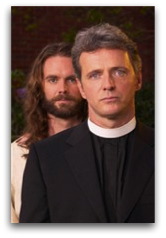
According to the Chicago Tribune:
Originally planned as a limited-run series of eight episodes, the controversial program about a pill-popping Episcopal priest with a troubled family has been pulled by NBC after airing for only three weeks. The series' ratings had not been great since its Jan. 6 debut, and the low ratings for the Jan. 20 outing of the show were the final straw. According to NBC, no further airings are planned.
I'm sure that there will be those who will criticize the Christian community for supposedly causing its cancellation. But I don't think we were the ones who killed it. It was practically stillborn to begin with. Besides all the ethical criticisms of the show, it primarily suffered from three things: bad writing, bad acting and Hollywood producers out of touch with the mainstream.
The demise of The Book of Daniel should come as no surprise. As I suggested in my initial review of the show, there was no way it could last for very long:
My hunch is that tonight's broadcast probably got decent, if not good ratings because of all the publicity the show received leading up to its debut. However, after that, the audience will begin to shrink. Add to that the time slot given to the show: 10 PM EST on Friday night. That has to be the worst time slot a show could receive.
My prediction is that by mid-spring, The Book of Daniel will be sealed for all of eternity (my apologies to ch. 12, v. 9 in the real Book of Daniel).
Mid-spring? Evidently I was too kind.
Slow Down Week: Jan. 15 - 21, 2006
"Seven days without fast food, fast cars, or cheap thrills. Seven days of taking your time, breathing easy and making yourself at home."
This is another campaign from the Culture Jammers Network. I don't agree with all their political views, but I do like their TV Turnoff week (of course, the television is on as I write this). And I also like the sentiments expressed by Slow Down Week. On the site for this campaign, there are links to slow food, slow cities, slow lifestyle, slow design, and slow politics. A trio of recommended readings look interesting, too, but I just have so much to do this week...
Make sure you watch the Flash animation if you go to the site.
New Orleans Mayor Ray Nagin Has Officially Lost His Mind
Update (1/28/06): I didn't think it worthy of a separate blog entry, but I saw this cartoon at the Time Magazine website, and I had to add it to this entry.
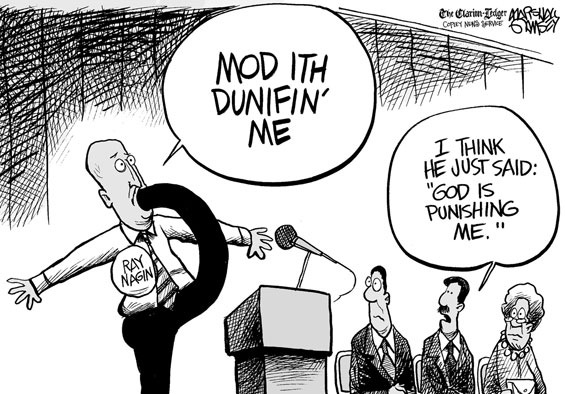
This Is Not Your Father's Book of Daniel (Pun Intended)
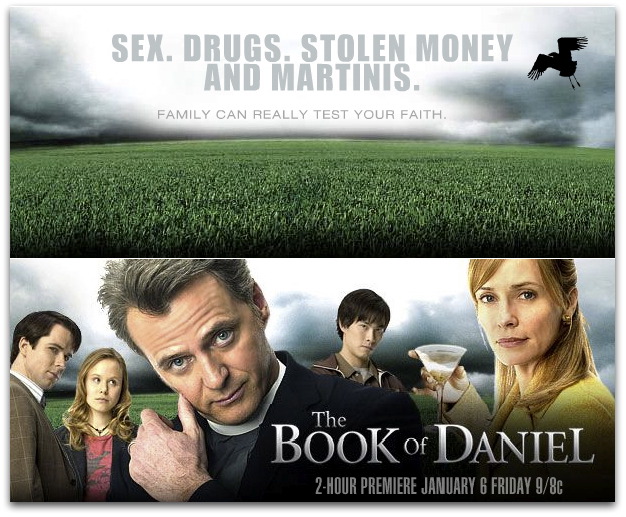
I remember hearing about The Book of Daniel almost a year ago. My guess is that it's been in production for a while, but may have been shelved for a time. I really don't know. Tonight NBC aired two episodes, the first of which must've been the pilot because hair lengths were different for some actors in the second hour (you know, they think we never notice such things). The show has garnered a lot of attention from a variety of circles, including negative reviews prior to its airing from groups like the American Family Association. I'm not sure how fair it is to condemn a television before it airs, and I naturally wondered if some of the negative buzz wasn't a bit exaggerated.
After watching the two episodes that aired tonight, I have to conclude that all the negative attention is not unwarranted. I tried to think of the best way to sum up the flavor of The Book of Daniel, and finally it hit me. How can I describe this show? Well, try mixing 7th Heaven with Desperate Housewives, and what do you get? Why, you get The Book of Daniel.
Here's the lowdown on the characters. I'll use the picture above and go from left to right.
Peter Webster (Christian Campbell): The gay son and oldest child of the show's main protagonist. Peter describes himself as being out of the closet, but not wanting to march in parades. Because his grandfather does not know he is gay, he allows himself to be set up with a young woman from church. Hilarity ensues in future episodes, I'm sure.
Grace Webster (Alison Pill): The only daughter. She's about 16, and shows talent as a potential manga artist. However, she needs money for software necessary for her craft, so she begins selling marijuana for which she gets arrested. Forced into community service, she meets another juvenile offender who agrees to download all the necessary software for her illegally from the internet in exchange for Grace's last bag of drugs.
Daniel Webster (Aidan Quinn): Episcopal Priest and main character. Webster comes across as fairly unsure of himself and his abilities, much like a new pastor fresh out of seminary rather than an experienced clergyman. He seems to have an addiction to prescription painkillers which he tends to take not for pain, but for stress. And he definitely has stress. His brother-in-law has run off with $3 million dollars of his church's money while his own family members have enough dysfunctions to fill any counselor's entire schedule. Fortunately (?) for him, he can talk directly to Jesus, who appears at regular intervals to him. Of course, in real life, if your pastor told you he had two-way conversations with Jesus, whom he could also see, you might want to call the men in the white coats. Quinn is a fairly decent actor, but in this role comes across as a poor man's Mel Gibson.
Adam Webster (Ivan Shaw): Adopted 16-year-old son, originally from China. Adam has quite the reputation as a ladies man and an out-of-control libido. He even propositions his sister at one point in the show, because as he explains it, they aren't actually related.
Judith Webster (Susanna Thompson): The supportive wife. There's not much to say about this character as the role was written fairly flat in the first two episodes, although she did seem to show a penchant for martinis.
Other Characters: Ellen Burstyn plays Dr. Beatrice Congreve who is the bishop overseeing (is that redundant?) Daniel Webster. She is very critical of a sermon of his in which he seems to condone giving into temptation, but later is shown to take a liking to Webster's prescription medicine. Toward the end of the second episode, we discover that she is sleeping with Webster's father (James Rebhorn) who is also a bishop. Of course, he's one of the most unlikable character's in the show, and the last person you'd want to have as your own minister. But his wife (Webster's mother) is suffering from Alzheimer's, which I suppose is why he feels free to cavort with Bishop Congreve. And then, there's Jesus, played by Garrett Dillahunt, whose portrayal reminded me more of a sixties hippie. I expected him to say "Far out, man" any second.
So what's the big deal? Well, there are a number of problems. In some circles people have praised this show because supposedly it depicts real life and the fact that no family is perfect. Well, I agree that no family is perfect, but the family in The Book of Daniel seems to be drawn more from families in daytime soap operas than the average family I know.
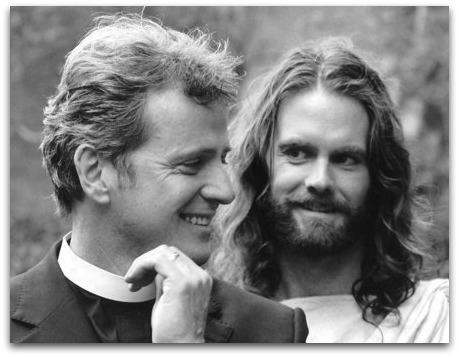
Early in tonight's pilot, the Rev. Webster (Quinn) guiltily rattles a bottle of Vicodin and informs Jesus (Garret Dillahunt) that he's got his consumption of pain-killers under control.
"Riiiight," says Jesus.
"Could you fit more judgment into that 'Riiiight'?" asks the reverend [sarcastically].
"Actually," replies Jesus, "yes, I could."
More examples? Homosexuality is declared to be genetic and normal, thus perpetuating this popular myth in spite of the fact that no studies have confirmed this with conclusive evidence. Also, during a subplot involving the reverend giving marriage counseling to a young couple, it's assumed that the two are living and sleeping together. "You mean you two are living in sin?" asks Webster. The man looks startled. "Just kidding!" says the reverend, slapping him on the shoulder. In the counseling session he even asks them about their sex life.
Nothing is condemned. When Webster is concerned over his adopted son's sex life, Jesus says "He a good kid. Let him be a kid." And that's the problem. Over and over similar statements are made. He's a good kid. She's a good woman. She's a good girl. When Webster objects to being rebuked by the bishop for his sermon affirming the benefits of sin (it makes us appreciate forgiveness more!), she responds with "Well, that's the business we're in." But if that's the business they're in, the business is going under.
The Book of Daniel is the brainchild of Jack Kenny, who has described himself in numerous interviews as an ex-Catholic gay man who has based the family in the show on that of his "life partner." Although he is not a practicing Christian, he says that he has respect for the religion. Really?
Consider for a minute that this show would have never seen airtime if it it revolved around a Muslim or a Buddhist family. Can you imagine a red-robed monk dialoguing with the Buddha? Or an imam engaged in conversation with a visual depiction of Muhammad? There would be jihad on Hollywood Boulevard over such.
And I don't think it's coincidental that Webster is an Episcopal priest. Of all denominations in the US, the average Episcopalian might be the least likely to object. And in fact, some have even praised the show for all the "positive" attention the Episcopal Church stands to receive. Like Jesus said in the first episode, "Riiiight."
As I mentioned earlier, I first heard about this show about a year ago. The context was surrounding a host of new programming the networks were considering in response to the favorable response toward Mel Gibson's The Passion. Surprised by America's reception of a movie that took spirituality seriously, Hollywood began searching for other spiritually related proposals previously snubbed. One of these was The Book of Daniel. They figured that if America would watch a whole film about Jesus, they would be willing to see him as a character on a weekly TV series. But all spirituality is not the same. And this is where Hollywood never gets it. The same core audience that went to see The Passion is not going to be interested in The Book of Daniel. And although it's being compared with Desparate Housewives, they're not going to attract those viewers either.
My hunch is that tonight's broadcast probably got decent, if not good ratings because of all the publicity the show received leading up to its debut. However, after that, the audience will begin to shrink. Add to that the time slot given to the show: 10 PM EST on Friday night. That has to be the worst time slot a show could receive.
My prediction is that by mid-spring, The Book of Daniel will be sealed for all of eternity (my apologies to ch. 12, v. 9 in the real Book of Daniel).
The Divorce Rate: It's Not As Bad As You've Heard
Consider this evaluation from Bible.org:
How many times have you heard or read that 50 percent of U.S. marriages end in divorce? It’s not true. Yes, the number of divorces each year is about half the number of marriages that same year. But that’s like computing the death rate by comparing the number of people who die with the number of people who are born.
That ignores those who neither were born nor died during that 12-month period. The 50-percent divorce figure ignores the number of intact marriages from years and decades earlier. The truth is that about one of 50 marriages ends each year, according to the National Center for Health Statistics. Pollster Louis Harris maintains that 90 percent of marriages survive until one partner dies.
Daniel Lynch, American Journalism Review, quoted in Reader’s Digest, p. 90
As tragic as divorce is, not everybody's doing it.
An All-Inclusive/Non-Offensive/Legal-Bases-Covered Seasons Greetings
Please accept with no obligation, implied or implicit my best wishes for an environmentally conscious, socially responsible, low stress, non-addictive, gender neutral celebration of the winter solstice holiday, practiced within the most enjoyable traditions of the religious persuasion of your choice, or secular practices of your choice, with respect for the religious/secular persuasions and/or traditions of others, or their choice not to practice religious or secular traditions at all...and a fiscally successful, personally fulfilling, and medically uncomplicated recognition of the onset of the generally accepted calendar year 2006, but not without due respect for the calendars of choice of other cultures whose contributions to society have helped make America great, (not to imply that America is necessarily greater than any other country or is the only "AMERICA" in the western hemisphere), and without regard to the race, creed, color, age, physical ability, religious faith, mental capacity, choice of computer platform, or sexual preference of the wishee.
THE FINE PRINT: (By accepting this greeting, you are accepting these terms. This greeting is subject to clarification or withdrawal. It is freely transferable with no alteration to the original greeting. It implies no promise by the wisher to actually implement any of the wishes for her/himself or others, and is void where prohibited by law, and is revocable at the sole discretion of the wisher. This wish is warranted to perform as expected within the usual application of good tidings for a period of one year, or until the issuance of a subsequent holiday greeting, whichever comes first, and warranty is limited to replacement of this wish or issuance of a new wish at the sole discretion of the wisher.)
Even the Rocks and Trees Cry Out
Be sure to read Jason's blog entry, "Never Waste a Tree."
By the way, in case you're keeping count, this marks my 200th blog entry since I began two years ago. My original goal was to write at least one blog a week. I believe I've surpassed that!
Blockbuster Stores Reinstate Late Fees

Of course, all this was contingent upon the fact that Blockbuster had correct credit card information on its customers. No, I haven't absconded with any unreturned Blockbuster movies to add to my collection. In fact, I can't even remember the last time I rented a movie (which I personally find to be sad). However, even if I had a video from Blockbuster, I would dare say that they do not have any current credit card information on me. My old credit cards were cut up, paid off, and cancelled when I shaved my head and drank Dave Ramsey's Kool-Aid. And even if they had my debit card information, I couldn't imagine it would be current. So, in my case, all they would be able to do is send nasty fee reminders and phone calls. In the end, according to the article I've linked below, this policy proved to be too expensive for many of the local Blockbusters, especially the independent stores.
I suppose it would be swell to think that out of generosity to its customers, Blockbuster introduced this really nice policy that eliminates one of the nasty aspects of renting videos, the late fee. However, Blockbuster had its own fine print to the deal. And then, again, so did it's customers. The customers' fine print can be read at Psalm 53 and Romans 3:23.
By the way, that reminds me...I owe $5.75 to the Louisville Free Public Library...
Read the full AP story, "Late Fees Return at Some Blockbusters."
State of Being: Whither Western Philosophy?
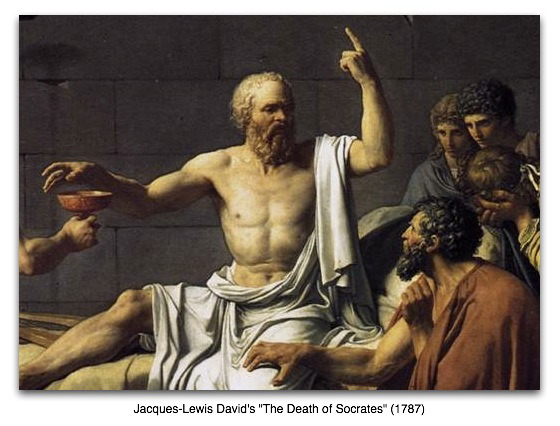
I had a few minutes to kill this afternoon (but upon reflection decided to let them live), so I stopped in to browse the shelves at the Louisville Books-A-Million. I'm still in the process of planning for my upcoming philosophy class, so I decided to look for the philosophy section. The average non-walled bookcase at Books-A-Million has five shelves. I found the philosophy section square in the middle of the religion/inspiration/Bible section of the store, and it took up a total of two of these bookcases, or ten shelves. "Great," I thought, "ten shelves of philosophy books to peruse" (okay, I doubt I actually thought the word, peruse). But then I looked closer.
The ten shelves were divided into three categories: Eastern Philosophy, Western Philosophy, and General Philosophy. Suddenly I realized how the shelves were balanced. Two shelves were devoted to the general category--not sure exactly what kind of nonsense was categorized there. But get this, there were TWO shelves of Western Philosophy and SIX SHELVES OF EASTERN PHILOSOPHY! Think about this for a minute, in an American bookstore, there was more space--three times more space--devoted to Eastern Philosophy than Western Philosophy.
Now granted, Books-A-Million is not the store that's going to set the standard for philosophy inventories. But this kind of odd balance of philosophical thought in a store in Louisville, Kentucky, which has one foot in the South and one foot in the Midwest, speaks loudly to the state of philosophy in our culture. In a society where morals have become more and more relativistic and there is less tolerance for absolutes, does Eastern thought now have more appeal, more persuasion, more influence?
Well, maybe. But then I looked a bit closer. The two shelves devoted to Western Philosophy had the normal stuff you'd expect: Penguin Classic editions of the standards, ranging from Plato to Nietzsche. Various surveys of Western Philosophy and more current interpretations were represented as well. Over to the Eastern Philosophy shelves--what was represented there? The writings of K'ung fu-tze (Confucius); this or that Dummies book on Buddhism, Taoism, and Hinduism; Sun Tzu's Art of War (actually, I found Art of War in the Western Philosophy section, too; all of it was a mess, but I got over my urge to straighten up store bookshelves years ago).
I figured it out. If there's overlap between philosophy and religion in the West, it's even more so in the East. And in many cases, the two are synonymous. What Books-A-Million called Eastern Philosophy was everything from Eastern thought to Eastern religion, all compacted into six shelves. Glancing around, there were cases and cases of books related to Christianity and Judaism, although most of it is popular stuff that I probably wouldn't ever read. And I couldn't imagine trying to pick out a Bible by myself at a store like this if I didn't know anything about the Bible (I counted six walled bookcases of Bibles).
In light of all this, I suppose the balance wasn't as off as I initially thought. However, perhaps the labels could be fine tuned a bit more. And the Western Philosophy section needed to be straightened up and restocked.
Fortunately, I guess Western Philosophy isn't gone from the culture yet. But don't go by the standards set at your local book mega-store.
Let's Apply "Happy Holidays" to Other "Special" Days of the Year
Following the politically correct logic of certain stores and businesses removing the word "Christmas" from their greetings in recent years and using the generic "Happy Holidays" or worse, "Happy Winter," perhaps we should extend such "courtesy" for other holidays throughout the year. In particular, I'm thinking of Halloween.
Yes, if I'm going to be home on October 31, I suppose I buy some candy in advance, to appease the racketeering little rugrats that come to my door, lest they shower me with rotten eggs and mark up my windows with soap. However, I realized that I hadn't really celebrated Halloween myself in a number of years, so why should I let people greet me with "Happy Halloween" in their stores? Isn't it insensitive of them toward me, as part of the probably 2% or so of the population who doesn't celebrate this holiday?
And what about the Catholics who are celebrating All Saints Day on November 1 and All Souls Day on November 2? And as a protestant, what if I want to celebrate Reformation Day (I did post a blog about it this year) on October 31? And what about the religious groups who offer "Fall Festivals" as alternatives to Halloween? Isn't it insensitive to all of us celebrating other holidays to only highlight All Hallows Eve? And isn't Thanksgiving just right around the corner, three weeks later?

Related Reading:
- Has It Come to This? Christmas in the U. S.
- Invasion of the Secular Snowmen
What's Next--An Annual Christianity Today Swimsuit Issue?
German youths offer R-rated Bible calendar
Topless Delilah, nude Eve illustrate Scriptures ‘in a different way’
Reuters
Updated: 1:02 p.m. ET Dec. 2, 2005
BERLIN - A German Protestant youth group has put together a 2006 calendar with 12 staged photos depicting erotic scenes from the Bible, including a bare-breasted Delilah cutting Samson’s hair and a nude Eve offering an apple.
“There’s a whole range of biblical Scriptures simply bursting with eroticism,” said Stefan Wiest, the 32-year-old photographer who took the titillating pictures.
Anne Rohmer, 21, poses on a doorstep in garters and stockings as the prostitute Rahab, who is mentioned in both New and Old Testaments. “We wanted to represent the Bible in a different way and to interest young people,” she told Reuters.
“Anyway, it doesn’t say anywhere in the Bible that you are forbidden to show yourself nude.”
Bernd Grasser, pastor of the church in Nuremberg where the calendar is being sold, was enthusiastic about the project which is explained online at [link deleted].
“It’s just wonderful when teenagers commit themselves with their hair and their skin to the Bible,” he said.
It will be officially launched over the weekend.
Copyright 2005 Reuters Limited. All rights reserved. Republication or redistribution of Reuters content is expressly prohibited without the prior written consent of Reuters.
© 2005 MSNBC.com
URL: http://www.msnbc.msn.com/id/10297248/
If this were being reported somewhere other than a newssite, I would think it was a parody of seeker-targeted evangelism. Where do you even begin with something like this? The Bible doesn't say that you're forbidden to show yourself nude? Even if you take the second half of 1 Timothy 2:9 to be culturally conditioned, the theme of the verse is modesty which would definitely exclude nudity. Further, if the calendar is being promoted as "depicting erotic scenes from the Bible" as described above, how could this ever be reconciled with the command to "Flee sexual immorality [porneia]" in 1 Cor 6:18?
By the way...yes, I removed the link in the news article to the German website. I'm not going to be responsible for providing links to pornography on my blog, and I truly believe that this calendar falls into that category. The fact that the calendar depicts biblical scenes simply adds blasphemy to the sin of porneia.
I have no doubt that they will fulfill their desire (pun intended) to "interest young people."
Has it Come to This? Christmas in the U. S.
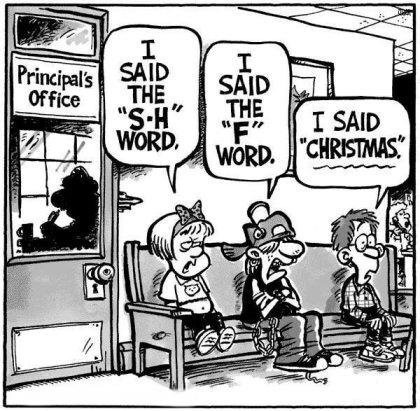
Some of you may remember my blog entry from last year, "Invasion of the Secular Snowmen," in which I commented that snowmen had replaced Santa Claus as the official symbol of
In last year's post, I brought to your attention the seemingly concerted effort to remove any mention of Christmas from the holiday season. And, of course, this year the big story is that Wal-Mart employees are not allowed to say "Merry Christmas." However, news as recent as yesterday indicates that either this wasn't true, or more likely, Wal-Mart is now trying to backtrack on their recent policy change. "Well, here's what we really meant... ."
The move to eliminate or at least ignore Christmas in our culture is in spite of the fact that an extremely large majority of American celebrate Christmas, even those who do not identify themselves as Christians...and even those who do not hold to any theist position at all! It seems that the United States has become so politically correct that our culture will now go out of its way to offend the majority as long as it does not dare run the risk of offending the minority. The only people who really get offended at this are in extremely small numbers--I would guess them to be less than 2% of the population, if not even smaller. When will we wake up and realize that to cater to the minority is an absolute slap in the face to the democratic ideals upon which this nation was founded? The non-establishment clause in the First Amendment was never intended to suggest that we try to please everyone, because in our attempt to do so, we please no one.
At least others have started to pay attention to this. I noticed that John Gibson has written a book, The War on Christmas. I haven't had a chance to read it yet, but it may be worth checking out.
I'm still recommending the same thing as last year: politely return a "Merry Christmas" when you are greeted with "Happy Holidays." Don't be obnoxious or start an argument, but let people know which holiday you are most happy about! The birth of Christ was never meant to be hidden or kept to oneself so as not to offend another. Rather it is to be announced, proclaimed, just as it was in the beginning:
“And the angel said unto them, Fear not: for, behold, I bring you good tidings of great joy, which shall be to all people. For unto you is born this day in the city of David a Saviour, which is Christ the Lord. And this shall be a sign unto you; Ye shall find the babe wrapped in swaddling clothes, lying in a manger. And suddenly there was with the angel a multitude of the heavenly host praising God, and saying, Glory to God in the highest, and on earth peace, good will toward men.”(Luke 2:10-14, KJV)
Responsible Spending for Black Friday

I'll admit that I'm on the email list for the Culture Jammers Network. What that means is that this time of year, I'm getting emails about "Buy Nothing Day" which to the rest of the country is known as "Black Friday," the largest spending day of the year. Last year, Americans spent $8 billion which was a 15% increase from the previous year. The problem is that over half of the purchases were spend on credit cards--primarily with money people didn't have.
I'm not choosing to join in with the Culture Jammers' suggestion to buy nothing on Friday (although I don't recommend looking for me in the malls). I don't think a spending ban would be good for our economy. However, spending money you don't have is not going to be good for the economy in the long term, and it won't be good for you at all. When people are so strapped from credit card bills, and their credit is shot, that's not good for them or the economy. And when people can't pay their bills and end up filing bankruptcy, that's certainly not good for the economy.
So, on Black Friday, be responsible. Be a good steward of what you have, and that begins by not spending what you don't have. Let "Black Friday" have new meaning by staying in the black yourself.
Related reading: "Black Friday Should Be Called Red Friday."
Rosa Parks on February 22, 1956
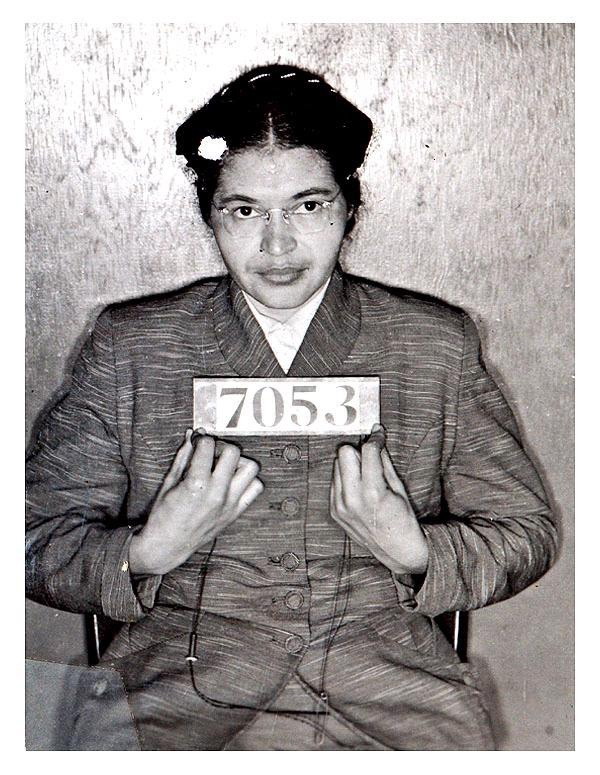
Above: Rosa Parks on the day of her arrest, February 22, 1956. She was arrested for not relinquishing her seat on the bus (which was behind ten seats toward the front) to a white passenger. For whatever reason, I can't remember ever seeing this photograph before today. It really doesn't need much comment from me. I simply see determination and quiet strength. I'll let the photograph itself supply the other 997 words.
Thanks to Bill McGinnis who saw my previous entry regarding Rosa Parks and alerted me to this picture.
Apple Tributes Rosa Parks (1913-2005)
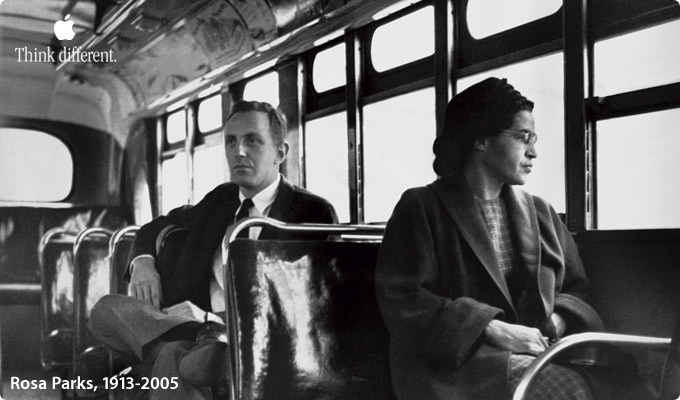
Apple reaches back to its old "Think Different" campaign to offer tribute to civil rights pioneer Rosa Parks who died Monday of this week at the age of 92. The picture is on the main page of their website, http://www.apple.com . Back in the late nineties, Apple released a series of posters with influential people from the 20th Century on them and the words "Think Different." If connecting a modern historical figure and a not-directly-related computer company is too commercial for you, take comfort in the fact that if you go to the Apple site and actually click on the link, it takes you to an informative article about Rosa Parks that makes no mention of computers anywhere on the page. Plus, there's a link on that page to the National Civil Rights Museum .
Principal Cancels Prom Over "Bacchanalian Aspects"

Image: The Triumph of Bacchus. Cornelius de Vos (1584-1651), no date. Museo del Prado, Madrid.
From the AP News story:
UNIONDALE, N.Y. Oct 15, 2005 — Kenneth M. Hoagland had heard all the stories about prom-night debauchery at his Long Island high school: Students putting down $10,000 to rent a house in the Hamptons for a weekend bash. Pre-prom cocktail parties followed by a trip to the dance in a limo loaded with liquor. Fathers chartering a boat so their kids could go out on a late-night "booze cruise."
Enough was enough, Hoagland said. So the principal of Kellenberg Memorial High School fired off a 2,000-word missive to parents at the start of the school year informing them that the Catholic school would no longer put on the spring prom.
"It is not primarily the sex/booze/drugs that surround this event, as problematic as they might be; it is rather the flaunting of affluence, assuming exaggerated expenses, a pursuit of vanity for vanity's sake in a word, financial decadence," Brother Hoagland said, fed up with what he calls the "bacchanalian aspects" of the prom.
"Each year it gets worse becomes more exaggerated, more expensive, more emotionally traumatic," he added. "We are withdrawing from the battle and allowing the parents full responsibility. (Kellenberg) is willing to sponsor a prom, but not an orgy."
____________________________________________________
I remember saving all spring for my senior prom in 1986. The tux cost around $100. Dinner another $30. Tickets were what--$20? $30? I don't remember, but I do remember only one guy I knew who rented a limo and the rest of us thought that was a waste of money. I don't think the whole night cost me more than $200. Looking back, none of it was that memorable, and right now, I'd rather just have the $200. I can't imagine taking part in the frivolous spending that accompanies proms everywhere these days.
Kudos to Principal Hoagland for confronting hedonism and decadence in a culture saturated with it. I hope he can keep his job.
By the way, in case you don't know, bacchanalian is defined as "characterized by or given to drunken revelry; riotously drunken : a bacchanalian orgy" (New Oxford American Dictionary, 2nd Edition). See also BACCHANALIA .
Update on the One Car Experiment
The Return of the One-Car Family
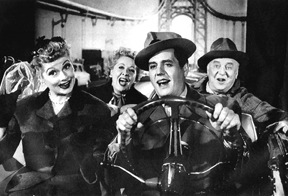
As I watch the devastating aftermath of Hurricane Katrina, I feel very fortunate for the basic things of life--a home, family, work--the things we usually take for granted. I can't imagine losing one of those things, let alone all of them at the same time as has happened to some.
Even with so many affected and displaced, the majority of the country is not so directly affected, but we will all be affected indirectly. This is not a good time to be building or remodeling a house. All resources are about to head south as New Orleans, Biloxi, Gulf Port and surrounding areas go through the process of rebuilding what was lost. The price of wood and steel is about to get much higher, especially for those who don't have the immediate need that the Gulf cities do. I heard from a friend today that even the price of coffee will go up since 20% of the nation's coffee supply is warehoused in New Orleans. But the biggest thing to affect the rest of us immediately is the price of fuel for our cars.
Locally, the price of gas jumped 65¢ in the last 24 hours. Now it's officially well over $3--the highest any of us have ever seen. I don't know about you, but Kathy and I now think before we even make unnecessary short trips. And it's been this way for the last few weeks as gas prices continued to rise. And for us that even means driving from Simpsonville to Louisville. Two weeks ago, we figured that it it cost us $6 just to drive into Louisville and back. As of tonight, it now costs even more than that. Therefore, we stay home a lot more.
But at the beginning of the week we also began doing something new--we began using one car. Kathy's PT Cruiser gets much better gas mileage than my Ford F150. So rather than each of us going our separate ways in the morning, we have been leaving together, and then coming home together. And you know what? It's kind of nice. We have to compromise. Kathy has to get up a little earlier than usual and I leave probably slightly later than I normally would. We walk out the door together around 7 AM, and I drive her to Simpsonville Elementary School where I drop her off. Then I make the drive into Louisville (although I studied from home on Monday to save gas). At some point in the day, I email Kathy and ask her what time I should pick her up, and that has varied so far between 5:30 and 6:00 PM.
Kathy says she loves the extra time we spend together, and I agree. When she sees me drive up to get her in the evenings, she says it makes her feel special to be picked up--like a child who's been at daycare all day and sees her family coming to get her. Now we begin to describe our individual days to each other before we get home instead of afterwards. We walk into our house talking to each other and continue to do so as we go about tending to Bessie Mae and getting our dinner ready. It's hard to imagine that a simple process like using one car to go to work would draw us even closer, but it has.
And we're not the only ones doing it. A friend of mine told me he and his wife are doing the same thing--at least a few days of the week--and Kathy tells me that the secretary at her school has started sharing a ride with her husband as well. Have you tried this? What are your thoughts? Hit the comment link below and let us know. Maybe it's a trend. Give it a try. Sure you will have to think about your schedules and make a few compromises, but the benefits may be even greater than just monetary. Plus, we may all look up and discover that we don't need two cars after all...
A Politically Correct NCAA

Is the above logo offensive?
Earlier today I was referred to an Open Letter to the NCAA by University of North Dakota president, Charles Kupchella. The letter is in response to the NCAA's charge that UND is among a number of schools whose use of Native American references in their athletic program (in this case, "the Fighting Sioux") has been "abusive and hostile." Follow the link to read the letter for yourself. It is very well written and needs no real comment here from me other than to ask if Notre Dame will be asked to discontinue use of "the Fighting Irish" next?
By the way, the official UND logo above was designed by Native American artist, Ben Brien.
Life is NOT a Video Game

Okay, I think this was the sequence:
1. Play Grand Theft Auto.
2. Kill three policemen in real life.
3. Blame it all on the video game.
4. GO TO JAIL ANYWAY.
Wired News is running a story about a 20-year-old in Alabama who blamed his murder of three policemen on child abuse and playing too much Grand Theft Auto. The jury didn't buy it, thankfully. As tragic as child abuse is, there are lots of people who rise above their situations. And there are lots of kids who play violent video games (for better or worse) and don't confuse fantasy and reality.
Lots of attention was given recently to Grand Theft Auto: San Andreas because a secret sex scene is hidden in the code of the game . Well, I've got news for the parents who pay no attention to the games their children are playing: the violence in the GTA games is much worse than a brief sex scene. When I had an XBox, I admit that I tried playing GTA. I'll be honest that initially it's a lot of fun. You basically get run of a virtual city and you can do pretty much whatever you want. But this game is different from say a Halo or Medal of Honor game where you are fighting an enemy--bad guys. GTA is a game that glorifies violence and vice without consequences. Need a new car? Pull grandma out of the driver's seat and take it. Decide you don't like someone for no reason at all? Beat him up or kill him. I played the game a little while, but never finished it. Even in a virtual world, I can't let myself become that. A number of my students at Whitefield Academy played GTA and laughed about the violence and sexuality. I tried to discourage them from gaining enjoyment from virtual vice, but they generally said, "It's not that bad." How do you break through to that kind of attitude? Here's a clue--it's the parents' responsibility to set the moral climate for any home.
Occasionally in Grand Theft Auto, the police will, in fact, catch up with you. But there's no real lesson to the player. It's an inconvenience. You start over on the steps of the police station. Well, not in real life. The boy in Alabama may claim that he was influenced by the game--that he didn't know the difference between fantasy and reality when he killed three policemen. But as he sits in a jail cell--without video games and possibly facing a death sentence--I bet he knows the difference now....
Recommend: Life Matters
1. This week, you need to go see The Island (see review below of the only major motion picture this summer dealing with ethical issues).
2. Then, read Nigel de Cameron's new ethics weblog at ChristianityToday.com: Life Matters which will give you much more detail on the moral issues I described in my review of the Island.
3. Then get with the significant people in your life and have a significant discussion in which you (plural) wrestle with these issues.
Peter Jennings Dies at Age 67
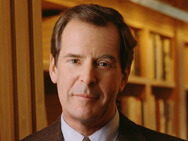
All my adult life, if I've been able to catch the evening news at 6:30 PM, my choice has always been Peter Jennings. I don't really know why, other than I just liked him better than Rather and Brokaw. I felt like I could trust him (not to say anything negative toward the other two anchors). When someone like Jennings dies after he's been invited into your home thousands of times, it's like losing a close friend, or maybe even a family member.
With the retirement of Rather and Brokaw, Jennings seemed set to rule the network news alone. But it wasn't meant to be. I was surprised to learn he had lung cancer in April like everyone else. I never would have guessed he was a smoker. I don't think I would have even guessed he was 67. He looked to me to be somewhere in his fifties. And as I grow older, 67 seems that much younger.
Peter Jennings is someone I admired. In spite of the lack of a high school education, let alone a college degree, he excelled in one of the toughest, most competitive fields possible. He made it to the top, and in spite of his lack of formal education, he still managed to learn from the events of the world and instruct us every night. I read in one of the stories about his death that during the 9/11 bombings, he logged some sixty hours of television time. That's more than just dedication to a job. His voice that week, like that of one's own father, brought comfort to a nation in the midst of crisis.
I remember watching with interest Peter Jennings' special, The Search for Jesus. Although I didn't agree with some of the voices on the program, I felt Jennings' effort to be genuinely motivated--more sincere than sensationalistic.
In the end, I hope he found Him...
Reminder: Last Day to Use Your Subway Sandwich Stamps
In case you have any of them lying around, today (July 31, 2005) is the last day you can redeem stamps for free sandwiches at Subway chains.
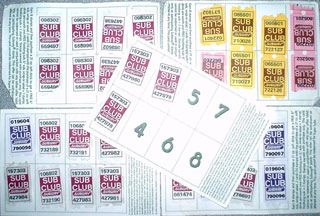
Afraid that counterfeiters were making fake stamps, Subway decided to do away with the program altogether . They stopped giving out stamps a few weeks ago and they designated today as the last day to redeem cards. But is that the right response to counterfeiters? Couldn't they have come up with a new stamps--some other solution? If the Federal Government took this approach to money counterfeiters, would they do away with physical currency altogether?
I'm sad to see these go. I've been collecting these coupons as long as I can remember. It was often an incentive to go to Subway over other restaurants. Mom and Sonny have been sending me theirs for years.
I have one card, good for one 6" sandwich, left. Dinner at Subway Sunday night and then from now on, Quiznos gets equal attention from me...
Profile Me, Please
I first heard about the incident described below on John Dvorak's blog .

Our political correctness has now officially run amok. I could easily imagine my mother or grandmother having the same reaction if she were groped by a total stranger. And that leads to the real question, Why are we spending time searching 62-year-old women when all terrorists have been male, and every terrorist act involving airplanes has been committed by males of middle-eastern descent?
This has now become ridiculous. Tell you what... if there's ever an APB out for someone matching my general description, I hope that I'll be searched and not my mother instead. Guess what? I won't be offended. And I won't be upset. You know why? Because I won't have anything to hide. If a person is doing what he or she is supposed to be doing, getting searched because you fit a certain profile should be no big deal.
I would hate to think that another terrorist act might be committed via one of our airports because security screeners were patting down a grandmother and while doing so let a person matching the profile of past terrorists slip on by!
Captain Miracle Doesn't Impress Me
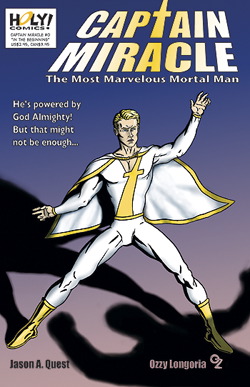
Captain Marvel was conceived by Jason A. Quest (I wonder if that's his real name?). Quest claims on the Holy Comics website that he is neither promoting Christianity or trying to make fun of it. He claims that Captain Miracle "is more of a thinking person's religious superhero [sic], and more "fun" than "fundamentalist."
Okay, see, I'm doubly offended. Not only am I offended by this comic book that, in my opinion, trivializes the Christian faith, but I'm also irritated that one of my favorite super-heroes of my childhood--Captain Marvel --has been ripped off once again.
Let's start with Captain Marvel [warning: rabbit trail alert]. First, his name is not Shazam. "Shazam!" is what Billy Batson says to turn into Captain Marvel. But let me explain why you're confused over this. In 1938 the first appearance of Superman in Action Comics #1 issued in the era of modern mythology centered around costumed heroes. Fawcett Publications wanted to get in on this by creating a super-hero on par with Superman, but not close enough that they would get sued by the company that would eventually be called DC Comics. So in 1940, Captain Marvel first appeared. Captain Marvel, an adult, was really a young boy, Billy Batson who could say a magic word, SHAZAM!, and transform into "the world's mightiest mortal." SHAZAM was an acronym for Solomon, Hercules, Atlas, Zeus, Achilles, and Mercury, legendary characters from whom Billy/Cap received his powers (I always thought Solomon was an odd choice to throw into the mix--a Jewish King known for his wisdom alongside gods and demigods out of Greek and Roman mythology).
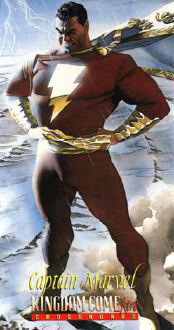
Sorry for the history lesson. So obviously, Captain Miracle is a blatant rip-off of Captain Marvel. This has happened before (in spite of Marvel Comics' own Captain Marvel, their greater counterfeit is The Mighty Thor ).
But my greater offense to Captain Miracle is the trivialization of Christianity that I see symbolized in this new character. Granted, I haven't seen the final product (don't know if I really want to). And I can't tell if Quest is sincerely trying to make a "Christian" comic book or if he is using parody to be antagonistic toward the Christian faith. Even the company, Holy Comics, has a tagline I don't like: "The Leader in Cruci-Fiction" [emphasis added]. In trying to create a clever tagline, they also run the risk of questioning the historical validity of Jesus' death on the cross. That and making Yahweh into a magic word is all a bit too sacrilegious to me, regardless of intentions. There have to be lines of discretion at some point.
And even if I were to give Quest and Holy Comics the benefit of the doubt and say they were being sincere, I believe Captain Miracle is going to be counter-productive to evangelistic efforts and unnecessarily offensive to certain groups. Besides the trivialization of the Christian faith mentioned above, I can see Jews being offended by the way God's name is being used. And the main page of the website would also undoubtedly be offensive to Muslims and homosexuals. I'm not opposed to offending people if it is truth that offends (1 Cor 1:23), but I don't believe it is ever wise to offend through mockery.
I don't like anything about this website's preview of Captain Miracle. Heck, I don't even like the cover of the first issue. Notice that Captain Miracle's third and fourth fingers are bent. This is a traditional sign of blessing used by clergy in some denominations, especially the Catholic Church. And Captain Miracle's costume looks like a cross between Captain Marvel's and a character from SNL's Ambiguously Gay Duo. The more I look at it, the more I am convinced it must be an antagonistic parody, but if it's not, that's a pretty sad indictment against what the creators are communicating thus far.

The Intrepid Force is described as "an elite fighting team in an age of bionics, genetic engineering, and interplanetary travel." I haven't read the second book yet, but the first was a good science fiction tale that while written from a Christian worldview, was never preachy or trite. If you like the X-Men or Legion of Super-Heroes, you should check out The Intrepid Force and Intrepid Force: Invasion . Both are available from Amazon.com or your local bookseller.
Tarzan and Me

When I first read that he would be appearing locally on his book tour, I remember saying to Kathy, "Hey, Ron Ely's going to be in town!"
"Who's Ron Ely?" she asked.
Who's Ron Ely? Who's Ron Ely? Come on! Doesn't everyone know who Ron Ely is?
For me meeting Ron Ely was like meeting a character out of mythology. He was a hero of my childhood, a legend, the kind of person you don't expect to meet unless you're on a top-secret mission adventure. However, for those of you who don't know, Ron Ely was a television and movie actor most known for his portrayal of Tarzan in the late sixties and early seventies. No, I'm not old enough to have seen him as Tarzan in its original run, but by the time I was old enough to know who Tarzan was, the television show was on in reruns in the afternoon after school. He was also the larger than life Doc Savage: The Man of Bronze in the 1975 movie of the same name (I have it on VHS). Ely was also the first replacement for Burt Parks on the Miss America pageant after Parks was unceremoniously canned around 1980 after twenty-five years of hosting the show.
Some characters you build up in your mind when you are a kid and then you are a bit disappointed to meet them in real life. Well, let me tell you that even in person, Ron Ely is a giant of a man. If you look in the picture above, notice that even though I am over six-feet-tall, he towers above me. He was still in great shape when I saw him even though he was in his sixties. According to the Internet Movie Database, Ron Ely did all of his own stunts in the Tarzan movies including the animal fights!
The amazing thing about the book signing was even though Ron was there to promote Night Shadows, there were throngs of people there with Tarzan and Doc Savage movie posters, comic books, and other memorabilia they wanted signed. Ely was very gracious to everyone. He seemed to understand what he meant to so many people like me who had seen him on television and the movie screen so many years ago. Granted, he was never an A-list action hero of the kind we're familiar with today. But when I was a kid, he was one of my heroes. I told him so on that day ten years ago when I met him at (the now-defunct) Hawley-Cooke. He smiled warmly and shook my hand. He said, "Thank-you." I think he really meant it.
But for me, at that moment, I was seven-years-old again. And Tarzan had just shaken my hand.
My Very Own Batgirl Mystery
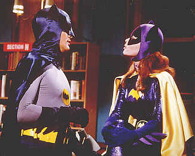
When I was about ten or so, I was visiting my grandmother in Malvern, Arkansas (population 11,000). While there, my dad said, "Hey, how would you like to go see the real Robin and Batgirl?" Of course I jumped at the chance.
They were signing autographed photos at the local Gibsons (a pre-Wal-Mart, Wal-Mart kind of store).
Now, you have to realize that of course, since I was born in 1967, I never saw the Batman series in its original run. I saw them only in reruns and I have never seen all of them (not that I would want to at this point in my life). I remember watching them as a kid, not realizing AT ALL that they were done with high camp. I had read Batman comic books before I ever saw the TV show, and by that time, thanks to Neil Adams and Denny O'Neil, they were very somber again. But I also had access to all these tabloid size reprints which I understood were from the fifties. So, I think--if I remember clearly--that I assumed the TV series was based more on the older version of Batman, which it actually was.
Anyway, when I think back to that day that I saw Robin and Batgirl at Gibsons, it's really kind of sad. Poor Burt Ward . An actor must surely realize that his peak has come and gone when he's participating in these kinds of events.
I don't think they were promoting anything at all--maybe just trying to make some extra bucks traveling around making appearances. I remember walking into the store with my Dad and asking where Robin and Batgirl was. They directed us to a corner of the store, and sure enough, there they were sitting at a card table in full costume...well, almost full costume. I remember being very disappointed that not only did Robin not have his green gloves on, but that he was also wearing a wristwatch. I had drawn Robin dozens of times in painstaking detail copied from comic books and I knew good and well that he didn't wear a wristwatch.
And I don't know how well their appearance had been promoted in Malvern. There was NO ONE around them. They were just sitting there talking to each other. I got their pictures autographed (publicity shots that I'm sure Dad had to pay for), shook their hands, and walked out of Gibson's slightly disappointed...but I wasn't sure why. Dad and I were kinda silent on the way back to my grandmother's house.
Anyway, fast forward 20 or so years, and I'm having a conversation about the Batman TV show with a buddy of mine. I mention to him that I once met the original Robin and Batgirl: Burt Ward and Katherine Whitfield. He looked at me funny, and said, "Don't you mean, Yvonne Craig ?"
I said, "No, I've got her autograph; I met her. It's Katherine Whitfield." He said that he didn't know who I had met, but Yvonne Craig played Batgirl.
Well, obviously he's right. So, who the heck did I meet? Who was impersonating Batgirl? This really bothers me. I've done a search on IMDB but can find no Katherine Whitefield (even using variations such as Catherine or Whitefield).
Could my memory be wrong? But how could it be SO wrong? I lose sleep over this some nights. Not really. But it's a weird mystery. I am not sure where the photos are. They are stuck somewhere with my autographs of Darth Vader and Terry Bradshaw, no doubt. Hopefully, these pictures will show up one day and the mystery will be solved, or at least have some light shed on it.
Invasion of the Secular Snowmen

I heard an interesting story from one of my students today. She said that recently when she was at her after-school job, she pleasantly greeted a customer with "Merry Christmas." After the customer was out of earshot, a co-worker sternly rebuked her for using that particular greeting.
"What's wrong with Merry Christmas?" she asked.
"You might offend someone," he said. "Not everyone celebrates Christmas."
Very quickly she replied, "Well, when I hear three hours of 'driedel, driedel, driedel' on the radio this time of year, I'll say something different."
Welcome to the post-Christian holiday season. Whoops. Can't even say that. To use the word holiday may offend someone since "holiday" comes from the words holy and day.
Anti-Christian bias is in full-swing this Christmas season. Don't believe me? Consider this...
- In the city of Denver this year, not only did the mayor ban the words "Merry Christmas" in the local Christmas parade, but also excluded a church from participating because their float is too religious.
- Target stores are not allowing Salvation Army bell ringers for the first time ever. The Salvation Army says they may lose up to $9 million. My suggestion--stay out of Target and let them lose $9 million.
- Lazarus-Macy's stores are no longer greeting their customers with "Merry Christmas" as official store policy.
- Christmas carolers were booted out of San Francisco's Union Square last week.
- A New Jersey school district bans even instrumental performances of any Christmas song , including ones about Santa Claus.
- School children in some schools this year are singing "We wish you a swinging holiday" instead of a merry Christmas.
As I look around the stores this Christmas, I see the words "Merry Christmas" less and less. But I see lots of "Happy Holidays" and references to "Winter Holidays." I feel like I'm living out the movie The Forgotten and pieces of my life are slowing disappearing. Christmas is going away, one carol at a time. Or perhaps you can compare it to some Orwellian vision of a future where words are redefined and history is recast in an effort to manipulate those who might want to think for themselves.
But guess what I'm seeing lots of? Snowmen. That's right, snowmen. Look around. They're everywhere. They're in people's lawns, in the stores, on television, and hanging from the light posts in many an American downtown. Why? Because they are religiously neutral. If we take away all the symbols of the holiday that carry any spiritual connection, all we're left with are snowmen, snowballs, and wreaths.
We were upset a few years ago when nativity scenes could no longer be displayed on the courthouse steps. We used to be afraid that Santa Claus had replaced Jesus as the true center of the holiday. We posted signs that "Jesus is the reason for the season." Well, now even Santa has fallen victim to out-of-control political correctness. You see, even good old St. Nick has Christian roots (Santa Claus = Saint Nicolas ). Christian trees are out, too because they have Christian connections.
But snowmen don't offend anyone, do they? They're happy, friendly, and pretty much a-theistic. Get ready to see lots more of them. I began to take notice last year that there were an inordinate amount of snowmen in Christmas decorations.
Now, please don't misunderstand me. If snowmen are your thing, if you like snowmen, that's fine. They're not of the devil, and if you have a snowman collection sitting on top of your fireplace, I don't think you're some godless infidel. So don't write me saying that I said that. I'm just pointing out the trend. I'm bringing it to your attention.
And I am confident that within a couple of years, some enterprising individual will start marketing a kneeling snowman that you can add to your nativity set.
Is this a big deal? Am I making something out of nothing? Am I being alarmist? Let me know what you think. I believe we are seeing culture shift even further toward a secular model. It's not just Christmas as we know it that's disappearing. Anything that has anything to do with Christianity is starting to be viewed not just with skepticism, but downright animosity.
Are the barbarians truly at the gate? I've got news for you--they've been there for quite a long time, and some have even come through the gate, warmed themselves by the fire, and pitched their tents. But we've ignored them, hoped they'd go away. But they didn't. And now they are starting to run the place.
What can you do about the erasing of Christ from Christmas?
1. When the word "Christmas" is removed from any area of the public sphere, politely voice your opposition. And let others know about it, so they can do the same.
2. Return all greetings of "Happy Holidays" with a "Merry Christmas" of your own. Don't be a jerk about it; just be vocal.
3. Use the secularization of the season as an opportunity for witness to it's true meaning.
4. And don't fall into the trap of commercialization and secularization yourself.
That is, unless you really want snowmen to become the symbol for the season. But I warn you. The snowman is a shallow symbol. Ultimately, although he is pretty to look at on the outside, he is cold and lifeless on the inside. And he is extremely transient when the heat is on...
Black Friday Should Be Called "Red Friday"
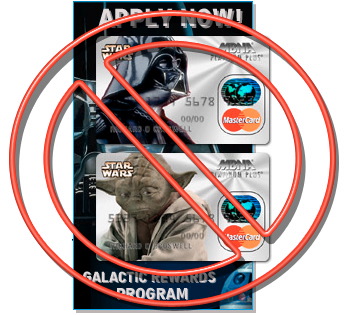
Now the bad news. Americans spent a WHOLE lot of money they didn't have which may lead to economic disaster in the long term.
The numbers are still coming in, but it's very interesting what is being said and not being said. Of the $8 billion spent yesterday, Visa is claiming that $4.1 Billion (that's slightly more than half for the mathematically challenged) was processed through its credit cards. Now in all the reports, the folks at Visa are quick to point out that 44% of all transactions were made with Visa debit cards meaning this portion of spending was made with readily available cash from checking accounts.
While that is commendable, what was said nowhere in the reports is that if 44% was spent with Visa debit services, 56% was spent with Visa credit! Let's do the math on that. If Visa is claiming $4.1 billion in transactions and 56% was in credit purchases, that means Americans spent $2.3 billion that they didn't have.
And that's just Visa. Of the remaining $3.9 billion spent on Friday, there's no telling how many folks used their Mastercards, Discover, and American Express cards to buy things they don't have the money for. And this is not good for the economy in the long run because in many cases it will overextend the financial health of American families, and in some scenarios, eventually lead to bankruptcy.
One report that I heard said that the average purchase made on Friday was $64, but the average credit purchase was $85. When you use credit cards--even if you pay them off at the end of the month--studies have shown that you spend more. When you spend cash, you are more aware of the outflow of your resources than when you use credit.
Maybe the day after Thanksgiving is "Black Friday" to the retailers, but it's "Red Friday" to the average consumer who is charging for Christmas gifts that he or she can't afford.
It's been a little more than one year since I said "No more" to living on credit (read my blog, "Searching for Financial Peace" to know more). Take it from an ex-credit addict, just say no this Christmas to spending what you don't have. When you're still paying for Christmas--plus interest, finance charges and late fees--in June, all the people you bought gifts for won't even remember what you got them.
Here's an idea. Why don't you simplify instead? Make your Christmas cards (I received a homemade birthday card today, and it was just fine). Instead of big expensive gifts, give coupons for gifts of time, afternoons or evenings to spend together at the receiver's choosing. Make your husband a scarf and your neighbor a homemade cake. Most of us will feel a need to purchase some gifts, but make a small, yet reasonable limit to how much you're willing to spend and stick to it.
And then tell your family that the greatest gift you are giving them this Christmas is the gift of financial security by not charging things for which you can't pay cash...
Do You -Sing- The Preamble?
Ask any Gen-Xer to recite the Preamble to the Constitution. Not only will he or she know it, but it will be sung to you. That's from watching Schoolhouse Rock on Saturday mornings between cartoons, one of the most clever educational ideas in the history of television. We learned to sing our math, grammar, history, science and civics.
I still remember in 8th grade when our teacher assigned us to memorize and recite the Preamble. Memorize? Not a problem--already know that song! The only hard part was not singing it in front of the whole class.
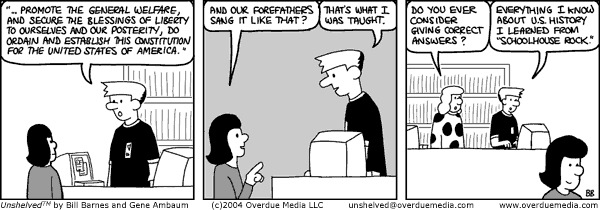
Trivia question: technically, there is a mistake in the Schoolhouse Rock version of the Preamble so that it would flow better as a song. A no-prize to the first person who can tell me the error in comments section below.
_____________________________________________________________________
Upcoming Blog(s) This Week: Three New Translations of the Bible You Should Know About
Halo 2 to Be Unleashed at Midnight
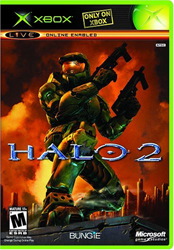
For the uninitiated, Halo 2 is long-awaited (right at three years) sequel to the game called a "platform maker" because people bought XBox machines simply to play Halo. It has never been ported to the PS2 or GameCube.
A mostly male crowd will be lining up at stores tonight to get their copy. I have no idea how to track such things, but it would be interesting to see what male absenteeism will be like in schools and in the workplace around the country on Tuesday. Personally, I can't justify taking time off from my job to play a video game.
However, this might be the first time ever that I would welcome the flu.
Louisiana Says "Absolutely Not" to Gay Marriage
I don't know how much attention this will receive on television news--especially since it occurred over the weekend--but my home state of Louisiana voted overwhelmingly to ban same-sex marriages . In an overwhelming 80% (that's -80-, EIGHTY) vote, residents of the state voted for a constitutional amendment that would limit legal marriage to that between a man and a woman.
That's an incredibly large majority and no doubt a huge surprise to proponents equal legal status for gays. Missouri held a similar vote in August, and there are ten more states who will vote on this issue in November. I would be willing to bet that all votes will be along similar lines.
This confirms my hunch that the average American citizen is not for changing a 5000-year old understanding of the institution of marriage. Rather than letting politicians debate this, all states should have the guts to follow Louisiana and Missouri's lead and put the issue before the people.
Maybe this will also offset a little bit of what you witnessed on Bourbon Street last time you visited New Orleans.
1000 Families
Last night, Kathy and I were strolling along Waterfront Park when we came across the Speed Museum's outdoor exhibit of Ommer's work. The pictures are almost life-size and there were quite a few people taking a look. Each picture comes with a description of the family photographed, with the name and occupation of those in the portrait. Since Ommer, a German photographer, was taking the pictures in the late nineties, he asked many of his subjects what they hoped for in the new millennium. Their answers provide a glimpse into the global sense of hopefulness that all people share, regardless of their background or social standing. Also, from the look of some of the clothes the people are wearing, my hunch is that they ran to get the "best" item of clothing they owned. Often they will be wearing a shiny pair of shoes or what looks like a brand new jacket. The descriptions under the portraits are in English, French, and German.
While standing in front of a picture of a family from Colombia, a real-life visitor from Colombia approached us and asked if we would take his picture with the exhibit family from his native country.
Pardon the teacher in me, but let me suggest that if you are in the Louisville area and have children, take them to the park and examine each picture together. Bring with you an atlas of the world so that you can look up each country represented in the pictures. Set aside an afternoon because there are quite a few of the pictures on display (but not not anywhere near the whole 1000). Read each description and reflect on what life might be like in that country. This could also be a lesson for your children (and you!) about appreciating the things we are blessed with in our country. Most of the families photographed seemed very poor by our standards. However, there still seemed to be a general sense of happiness and hope for the future.
Below is a low-res picture I took of Kathy standing next to one of the exhibits. Unfortunately, we only had the camera on my cell phone. The man in the picture trains monkeys to climb trees and retrieve coconuts. Notice that there is a monkey standing next to him much like a child with his father. Pictured at their feet are two coconuts.
The pictures will be on exhibit at the Overlook on Waterfront Park until September 19 and at the Speed Museum until November 28.

Walking A Mile In Another Woman's Shoes
My blog "Smackdown in the Kroger Parking Lot" has received more feedback than any blog I've written previously. I have already shared one response at the end of yesterday's blog, but the two I've received today comes from two mothers with an opposing viewpoint. I try not to argue with mothers of any kind, so I am going to give them their own space. Then I will give some very brief commentary that hopefully won't get me smacked.
First, a response from a mother of two:
For years it always bugged me when anyone left a shopping cart anywhere
other than the corral. If I happened to park anywhere near one of these
lonely stray carts, I would also push it into the store to use myself.
However, I have to admit that since I now have small children there are
instances when I do not return the cart to its proper resting place. The
reason, you might ask? Simple! My children are worth more than a $25,000
car any day. You see normally it is quite easy for me to unload my
groceries, buckle my children in their car seats, lock the doors of the
minivan and push the cart to the corral. (Quite frankly there are people in
today's society who would report you to child services for something as
simple as that.) BUT if the corral is not very close to my car (within easy
eyesight or a few seconds sprint) I refuse to leave my children in the car
alone even if it is locked. Also, I have to say that what used to be a
severe aggravation to me now actually helps me out. I LIKE to pull into
spaces where there is a cart nearby because I can get the cart and load up
my children. That is much easier on me that carrying one child while making
sure the other has a tight hold of my coat or shirt. Believe me, I do
understand your aggravation. I used to be one that ranted on this subject.
I suppose I have just learned to mellow with my life circumstances - or
should I say my little blessings!
And now from a mother of three:
First, you are a man, thus, you suffer from tunnelvision. Don't feel bad, most men do. We all do at some point or another, just men think in straight lines while women think in circles. Let me widen your tunnel....
As a mother of three, of which at one point all three were 6 and under, it is extremely hard to get inside a grocery store, or Walmart type stores, with all the stuff. 3 young bodies, of which at least one has fallen asleep on the way to the store, a giant and bulky infant carrier with a giant and bulky infant inside it, a purse with way too much stuff stuffed in it, a baby bag with 1737 different emergency needed items in it, and of course, my half drunk soda and the boys leftover chicken McNuggets that they want to finish in the store. All of these items of which at some point in the parking lot will be grabbed by the giant infant and flung in various directions for the sake of watching the flight. So then, if said mother happens to be attempting to carry all of these things for LACK OF A LEFT BUGGY in the parking lot she must set down said infant carrier to retrieve the thrown item while dropping everything about her and her 2 sons beginning a slugfest while entering traffic.
So the obvious solution that I learned upon having my first giant infant in the giant, bulky and leaden infant carrier, was you try and park next to the cart corral. Of course the odds of getting next to the cart corral are very slim because usually a giant Wal Mart parking lot only has 2 or 3 corrals and that means about 15 spots abut the 3 corrals and in the average parking lot there are about seventeen million cars at any given time. Kroger has less, but they only have one corral.
Now also when the Kroger boy comes out to collect buggies, the first place he goes is to the corral so he can get a bunch easily and come in and show his manager he did something. So the corrals are generally empty. And if I am not close to one, I have to leave my sleeping giant infant in a car in 110 degree heat and lock the door to trot across the lot and get a buggy. You think you give mean looks to people???? Try getting one from some old lady walking by that sees you lock your kid in the car and trot away. I actually had one call the police on me once and we had a Smackdown right there....but that is another story. I called her names, she didn't like that.
So for the last 15 years of my life, when I am going to a grocery store and have a young child in the car (Andrea at 8 still falls asleep on the way to the store) I cruise the parking lot looking for spots where lazy people have left there buggies. I then pull in the spot next to the lazy persons buggy, open my doors put my giant infant and the giant carrier in the buggy along with my bags, and cokes, and toys and blankets and everything else. As the kids got older (and at present), I keep a pillow and a blanket in my trunk and throw them in the buggy and lay Andrea on it to keep sleeping and have a peaceful stroll up the produce aisle.
At some times I have parked next to a perfectly good leftover lazy person's buggy, only to have the Kroger boy jump out of no where and grab that buggy to return it to the store. Where then I'm running across the parking lot and hollering at the buggy boy to give me back my buggy---NOW!!!!!!!!!!!!
Now if I happened to be parking next to a nice lazy man who intends on leaving his buggy askew so I may then steal it and some well intentioned blonde man with a mission were to jump out and grab the lazy man's buggy and grab it with an evil stare, said well intentioned blonde man would find out what it was like to have a 35 pound baby bag with 3 bottles of apple juice, 6 diapers, 17 toys, 1 box of baby wipes and 2389 other various and sundry items impact with his left cranium. It would not be pretty......but he might find himself finding his tunnelvision had been cured just a bit.
Now one can understand what it is like to have zooming wind blown buggies impact with my very pretty green, clearcoat finished Mustang. The thing with that is just park far away from everything. After all, we are not lazy are we???? So the extra walk would do us good. I park away anyway because of cars opening there doors and dinging me. But when I have a sleeping Andrea, I opt for the dings so I can throw her in the buggy and have a happy trip. And of course there is the add in comment from my dear hubby, who is currently on crutches and says he's not about to hobble his buggy back to the corral when there is that perfectly good mom with children eyeballing his buggy from the next slot.
So, thus, my story. I hope it helps. And makes you understand a bit more how others see the world and how hopefully it will make you understand why some crazy woman smacked you in the head with her baby bag in Krogers parking lot when you were simply trying to be a good and exemplary citizen.
I suppose that the above points are valid. In spite of risking getting hit in the head by a baby bag, I think I may still go by my suggestion and take a cart in to use it. I mean some kid's going to come gather them at some point anyway. And I'm still worried about them running willy-nilly across the parking lot. And I guess from now on, I will excuse mothers with little children for leaving their carts in the parking lot. BUT... anyone else leaving their cart where it doesn't belong may look up to see me leaping from the top of a hummer after all.
Smackdown in the Kroger Parking Lot
Okay, first of all, I realize that I get a bit grumpier every year as I get older. Nevertheless, it seems to me that people are less and less courteous today than they used to be. One minor example of this is the subject of this blog.
Yesterday, I stopped at Kroger to pick up a few groceries. I saw an open parking spot about 3/4 of the lot away from the store and began to turn in that direction. As I am doing this, I happen to notice a woman (whom I shall describe as looking middle-aged and middle-class) who had just loaded her groceries into the vehicle next to my open spot. Finished with her now-empty cart, she proceeded to push it--not to corral where once-used carts are supposed to go--but rather into my open parking spot!
Seeing me pulling into the spot (and perhaps the look of consternation upon my face) she quickly developed a look of "Oh! I've been caught." Then, instead of pushing the cart in my soon-to-be parking space, she pushed it into the empty space in front of mine, smiled at me, got in her SUV and drove off.
I don't understand this. I admit there are a number of things I can be a bit lazy about. For instance, I often procrastinate grading papers (which I should be doing right now instead of writing this blog). But to me, leaving your shopping cart in the middle of the super-market parking lot is the equivalent of not picking up after yourself. I've got lots of bad habits (some perhaps even worse than this), but I've never sent some 16-year-old super-market clerk off after my cart because I was too lazy to put it where it goes.
I've noticed more and more people doing this. And I've even tried to put together a profile on who it is who commits such an egregious offense. But overall, I've found that laziness and discourteous behavior knows no distinction of gender, race, or social status. I've seen all kinds of people do this lately--men and women of various racial backgrounds and (from outward appearances and the vehicles driven) are from various levels of income.
This is a minor thing, I know, but it is one of those things that just aggravates the fire out of me. It makes me want to have a WWF Smackdown right in the middle of the Kroger parking lot. I want to come leaping off the top of the nearest Hummer, knocking the shopping cart offender to the ground and with my finger in his or her startled face, growl "Hey Buddy! Is that where that buggy really goes?"
I mean, besides being inconsiderate, shopping carts rolling around in the parking lot willy-nilly is both a safety hazard and a source of little dings in the doors of your mini-van.
What's the solution? Beats me. I've tried shaming people with "Sir, would you like me to put up your cart for you?" But things like that and other instances of not minding my own business such as telling some little girl at the movie theater that her boyfriend didn't wash his hands in the bathroom is just going to get me beat up one day.
Here's an idea that might work, and maybe you can do it with me. Next time you or I go to the grocery store (or Target, Wal-Mart and other places where they have carts), and we see carts not in the corral, let's all get one and take it with us. In fact, since we're going into the store anyway, let's bypass the corral and use it ourselves or if we don't need it, put it with the others that have been gathered up for the next customers. Who knows? Maybe it will catch on and we can restore one minor form of courtesy in the world.













